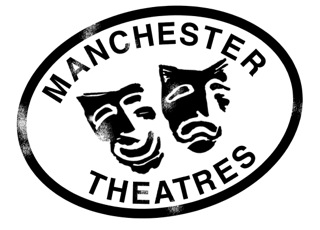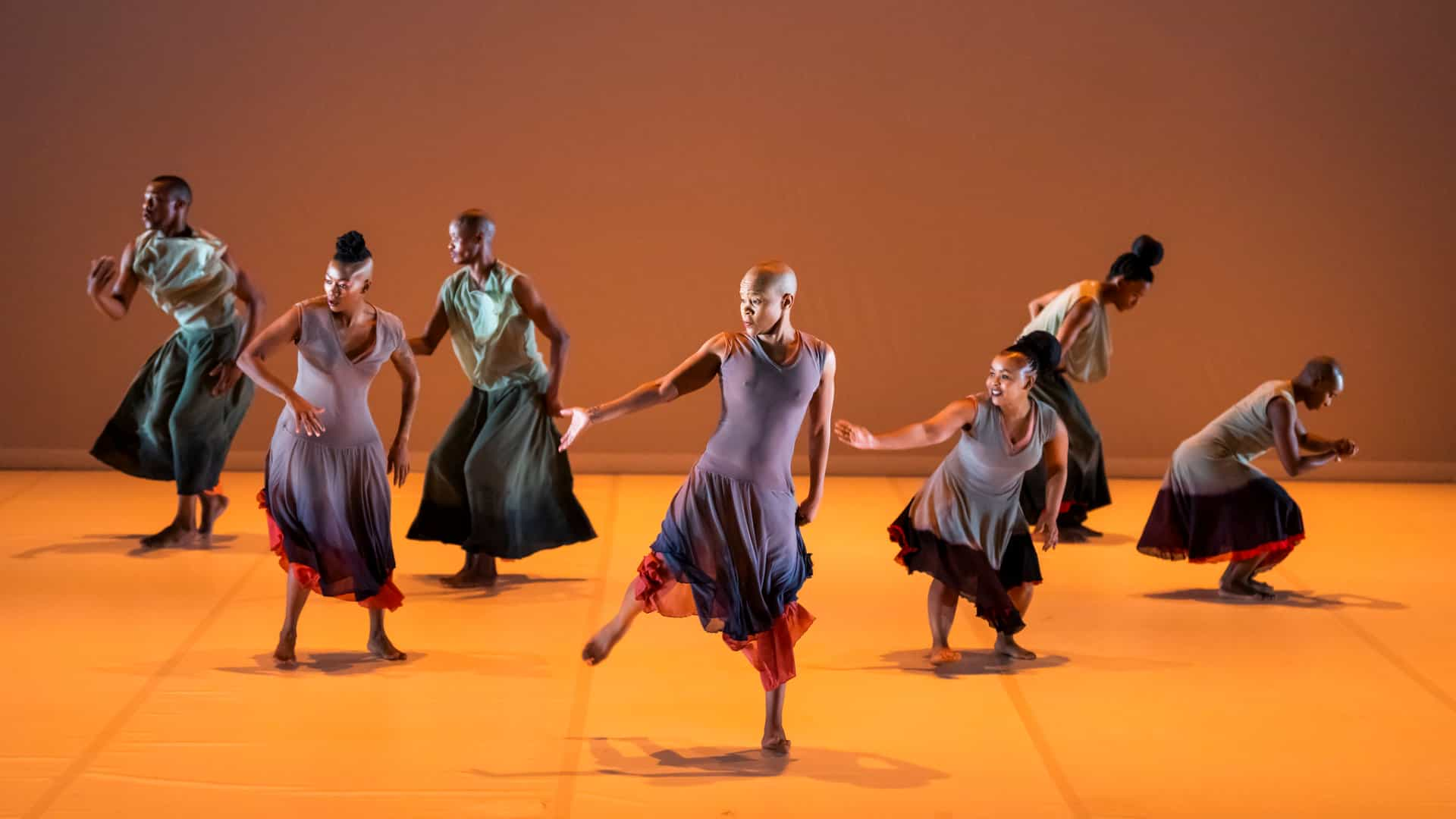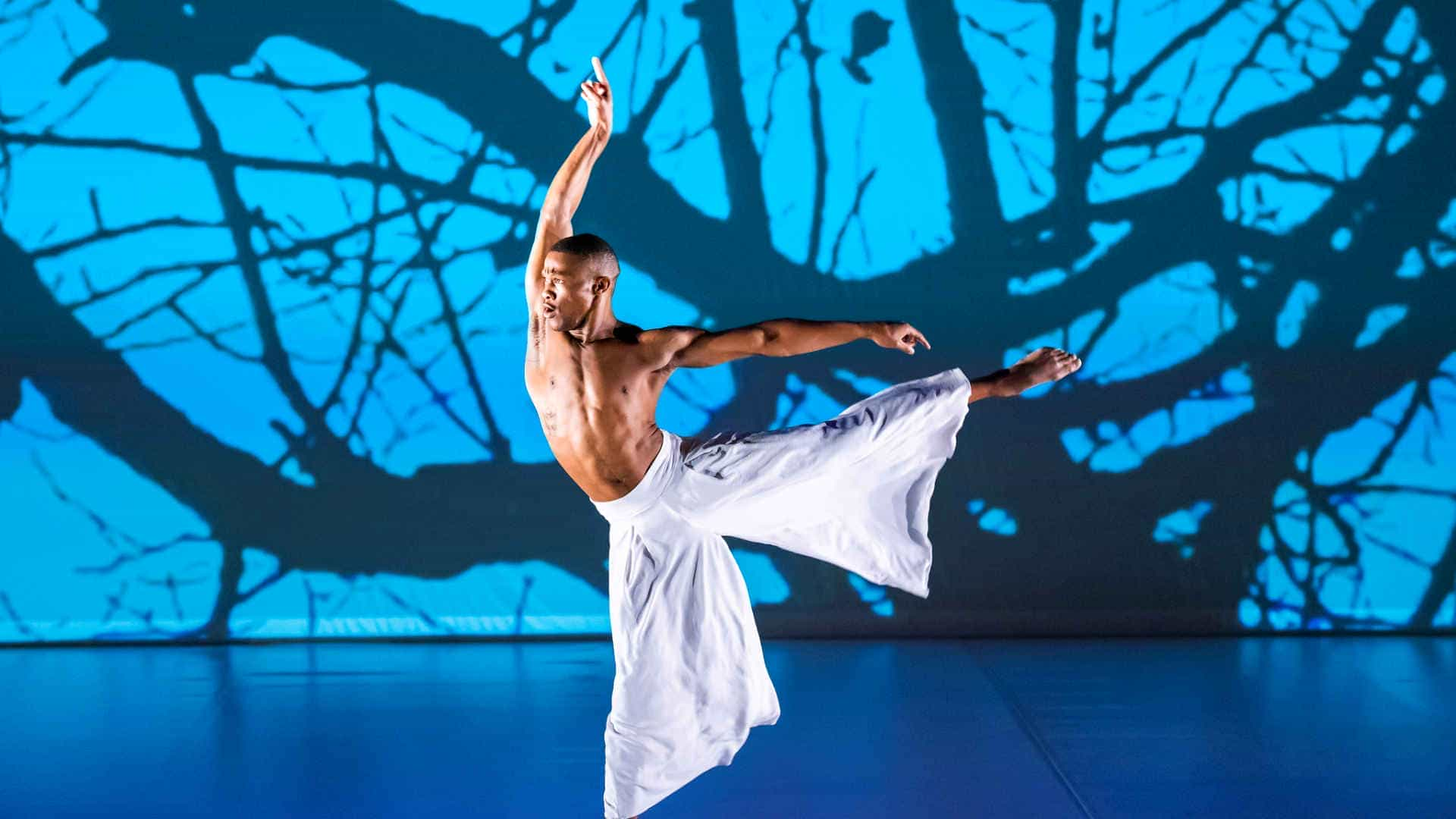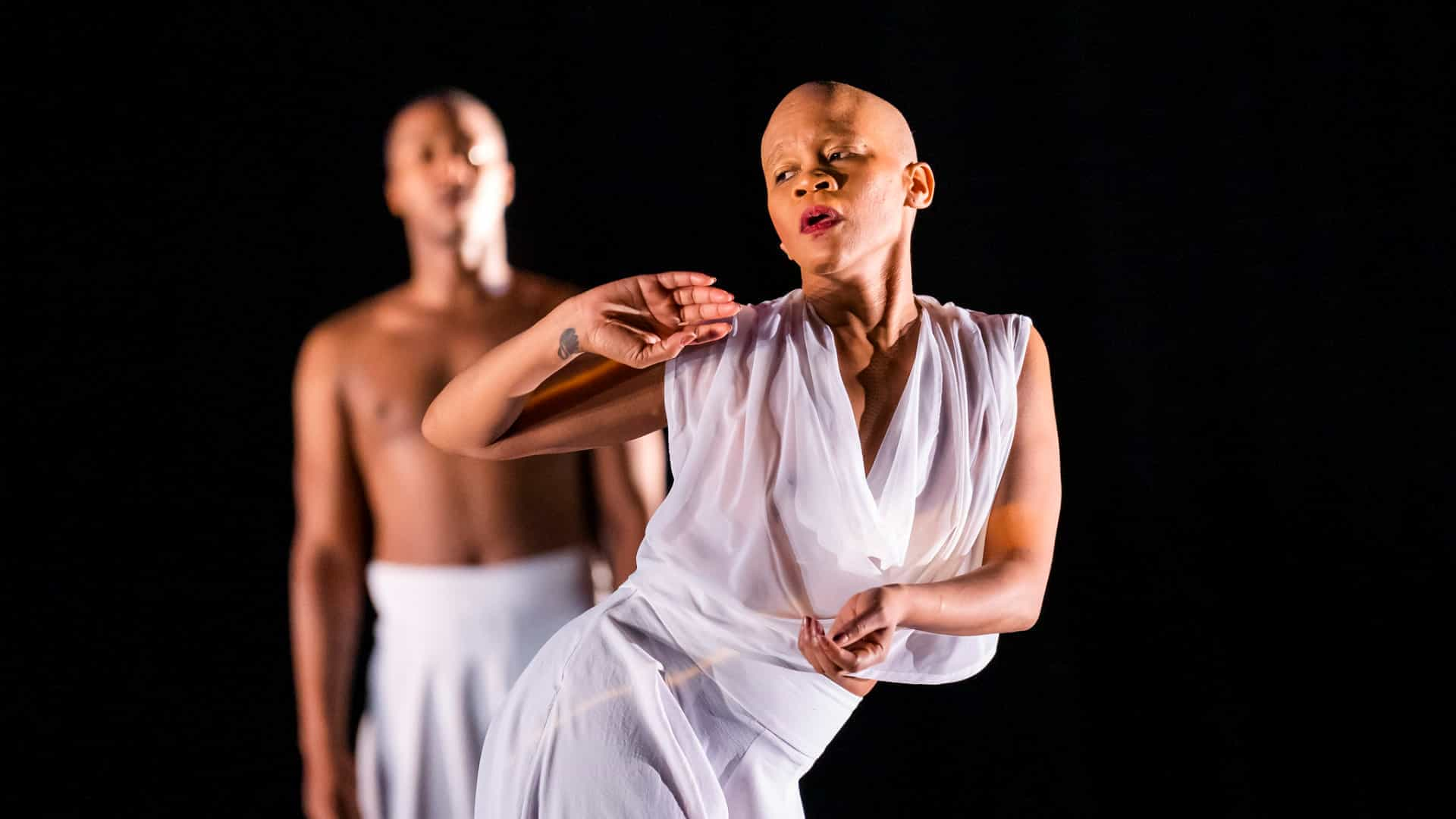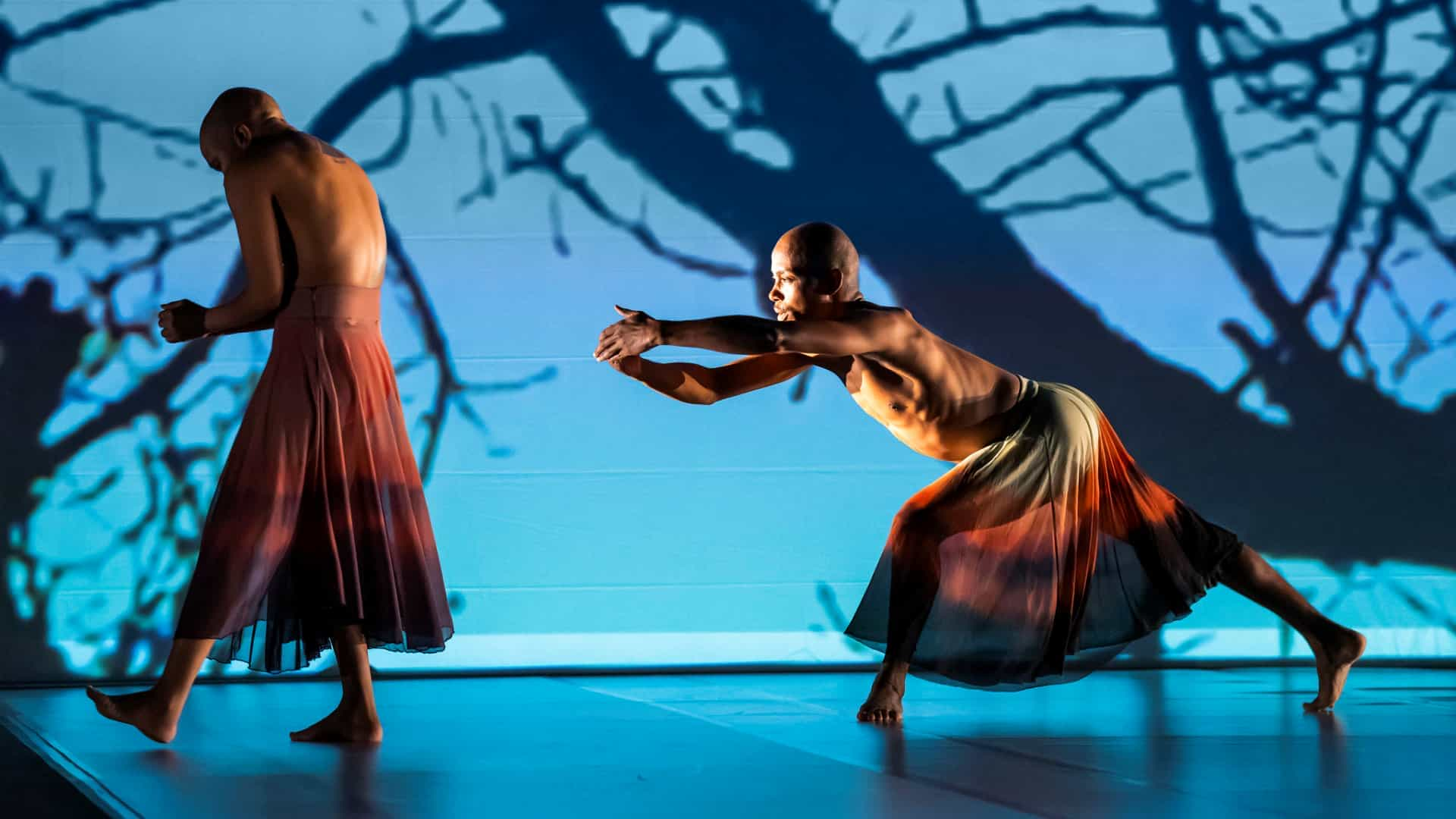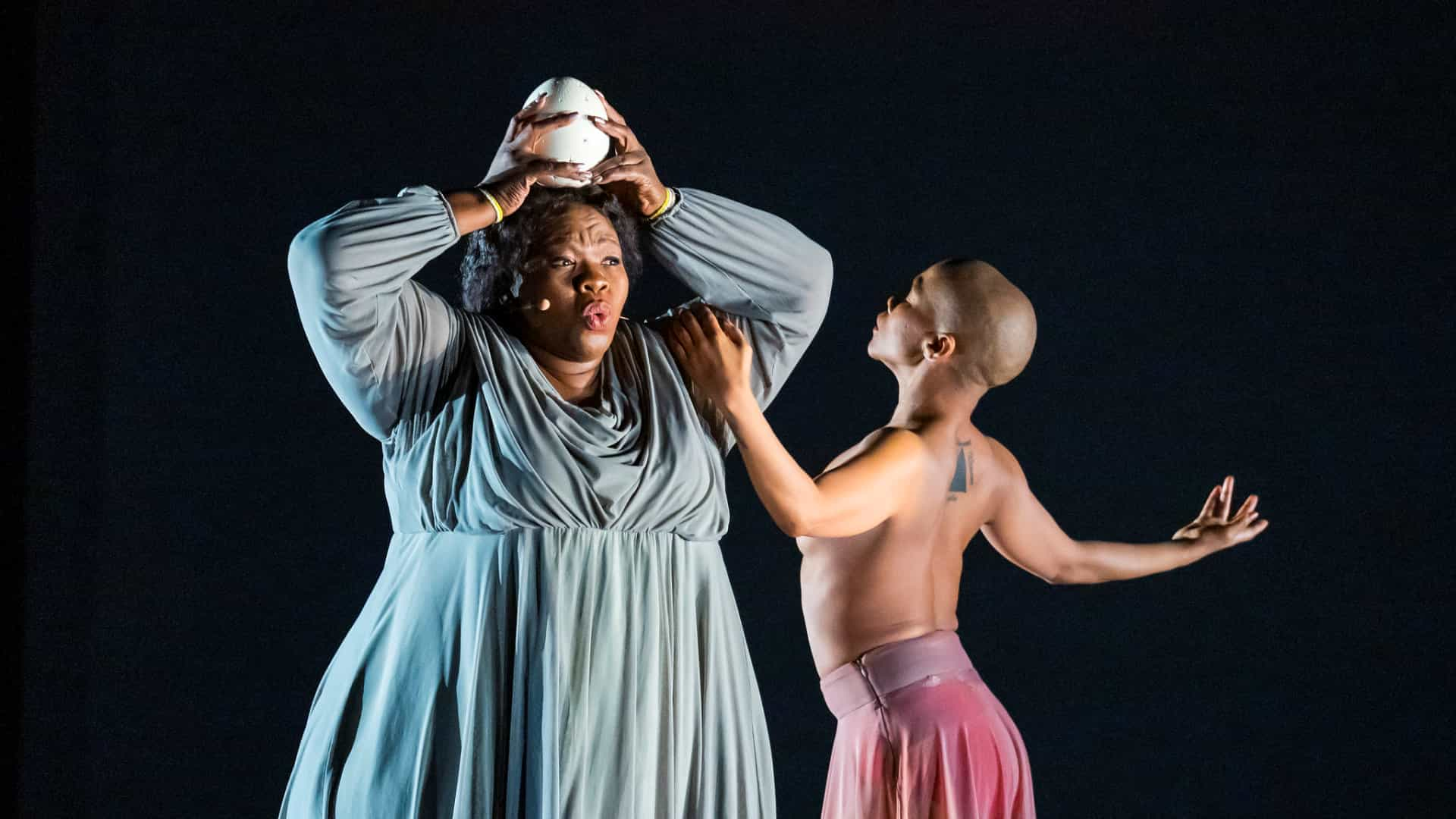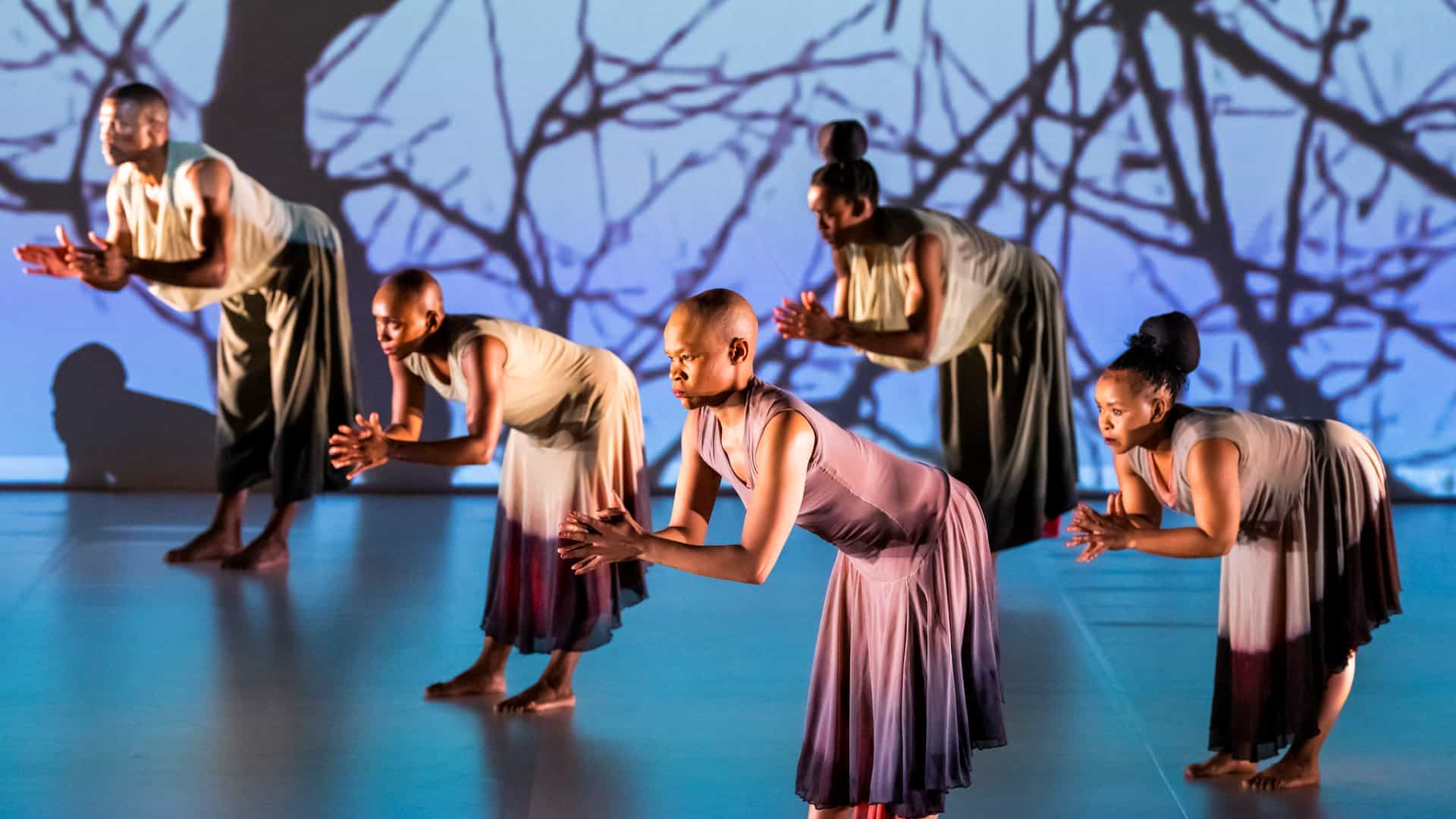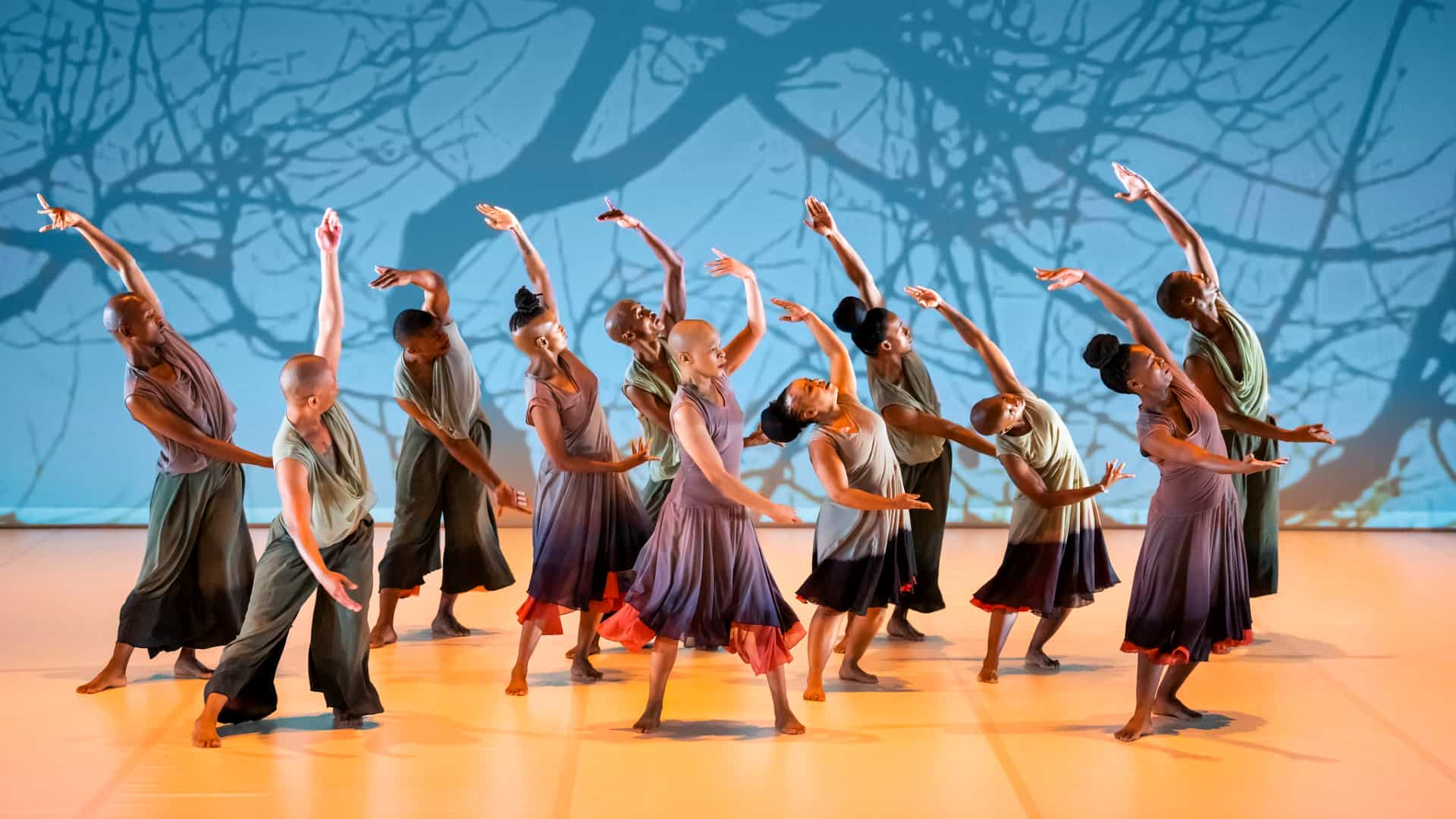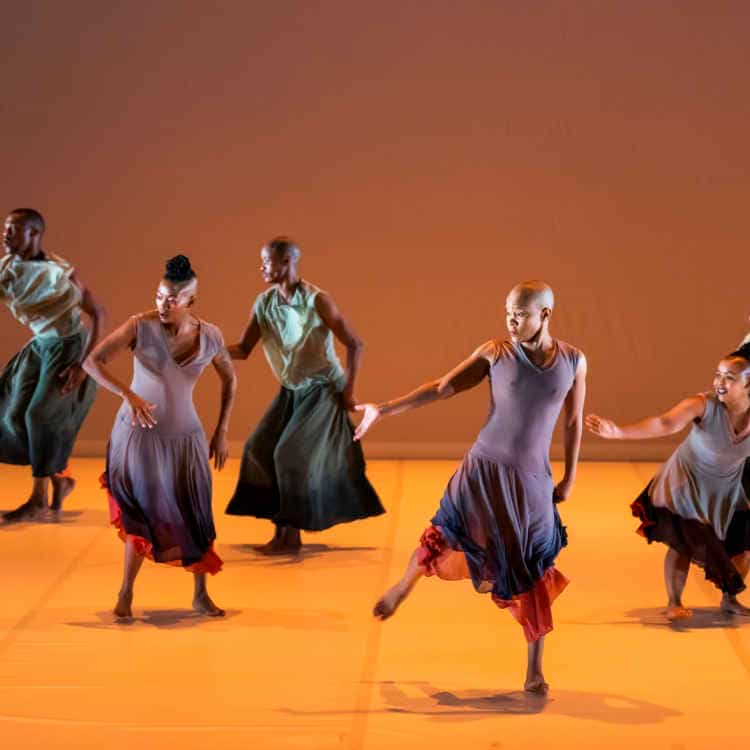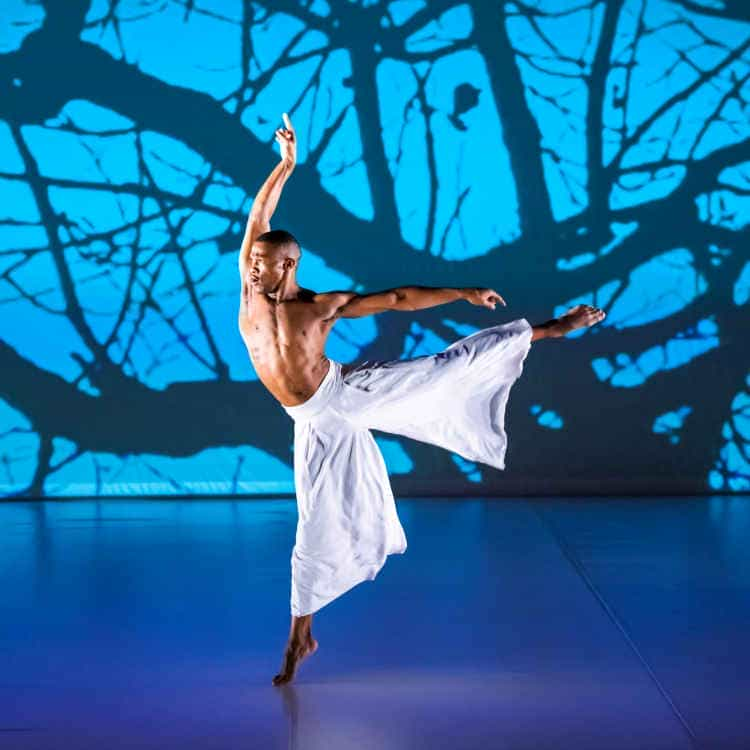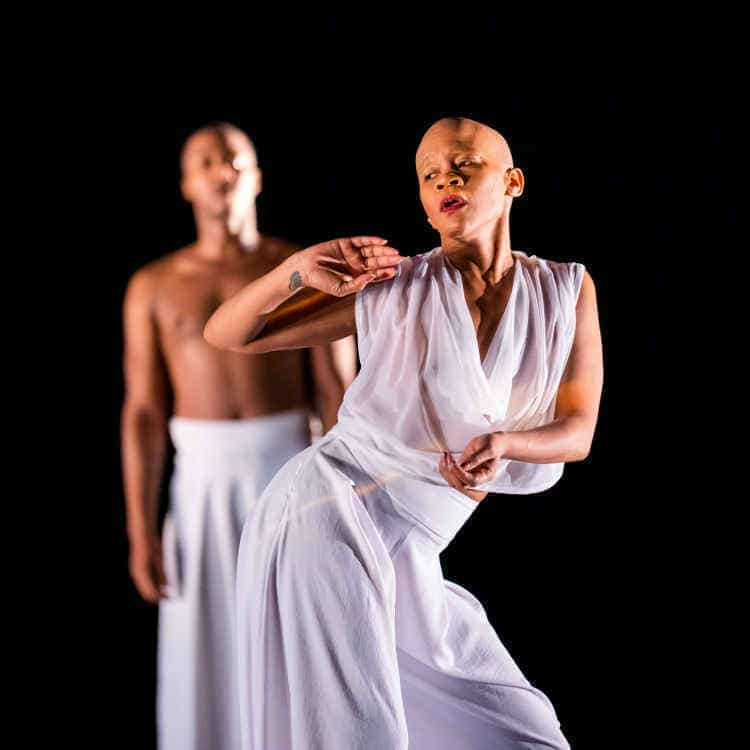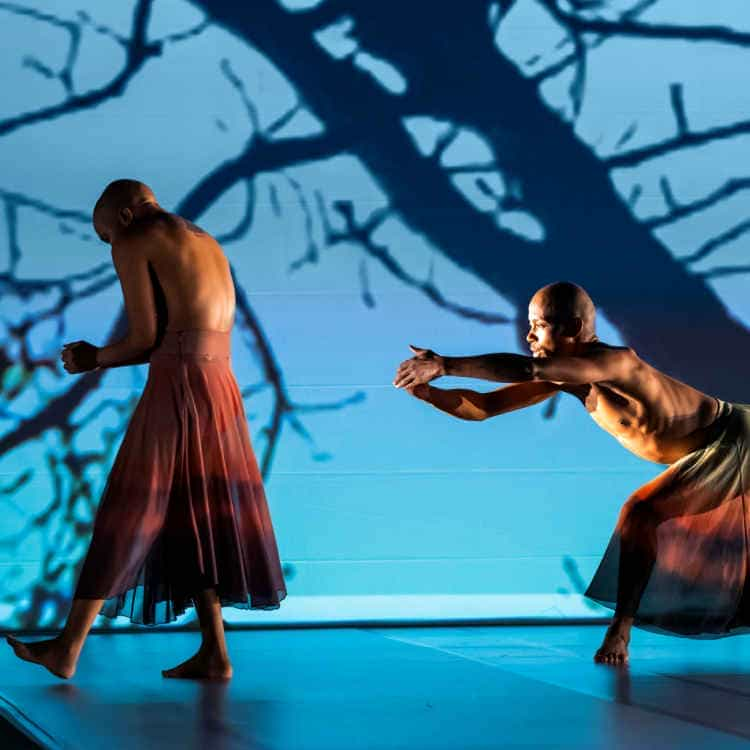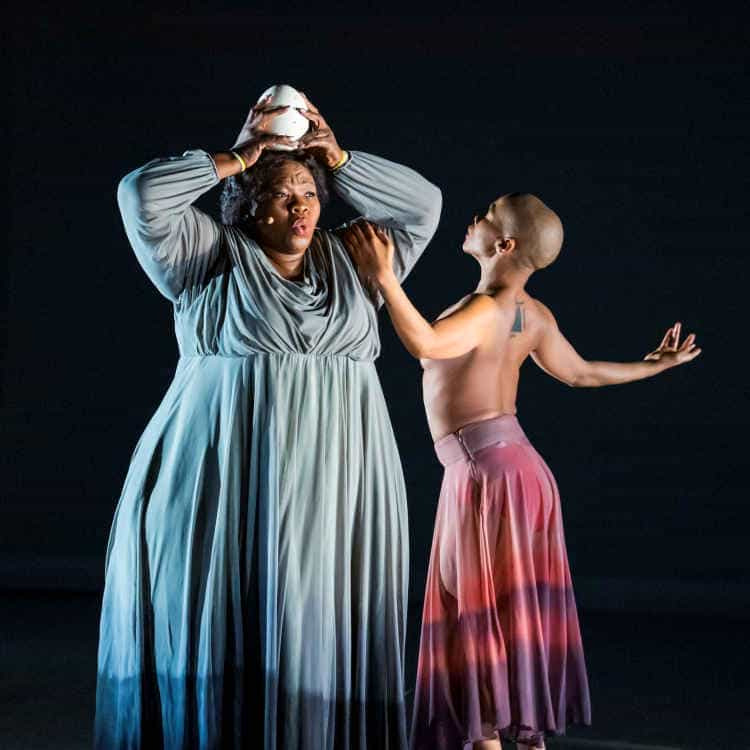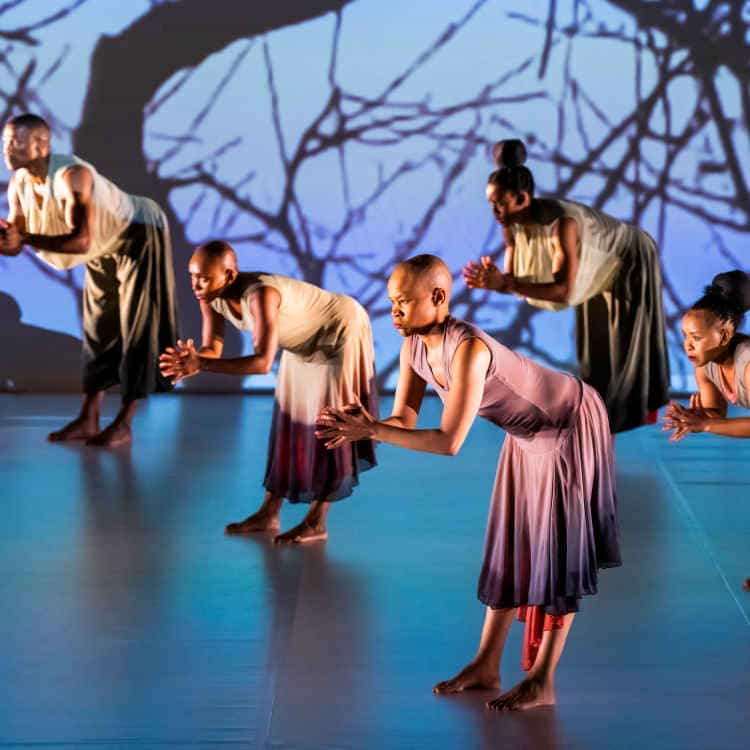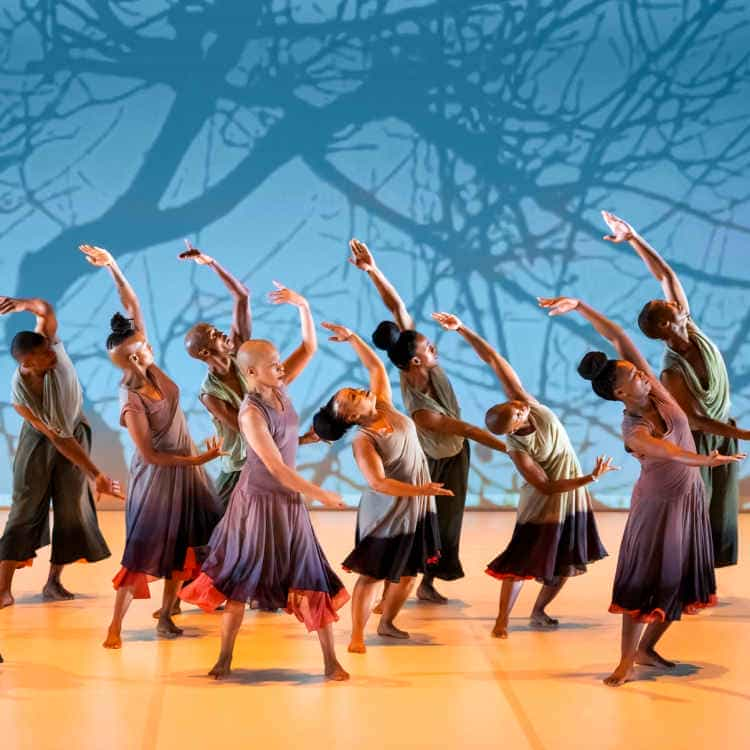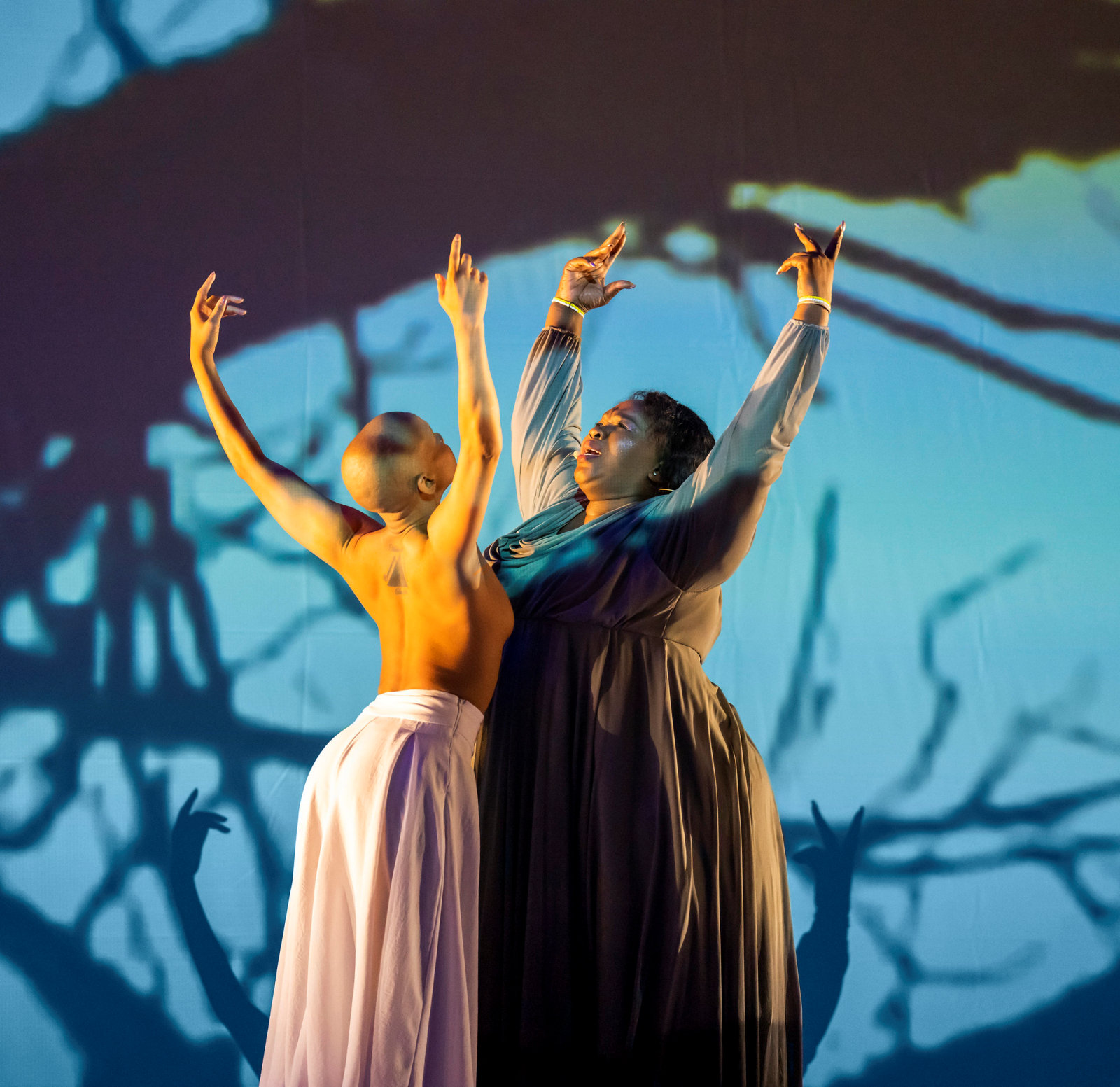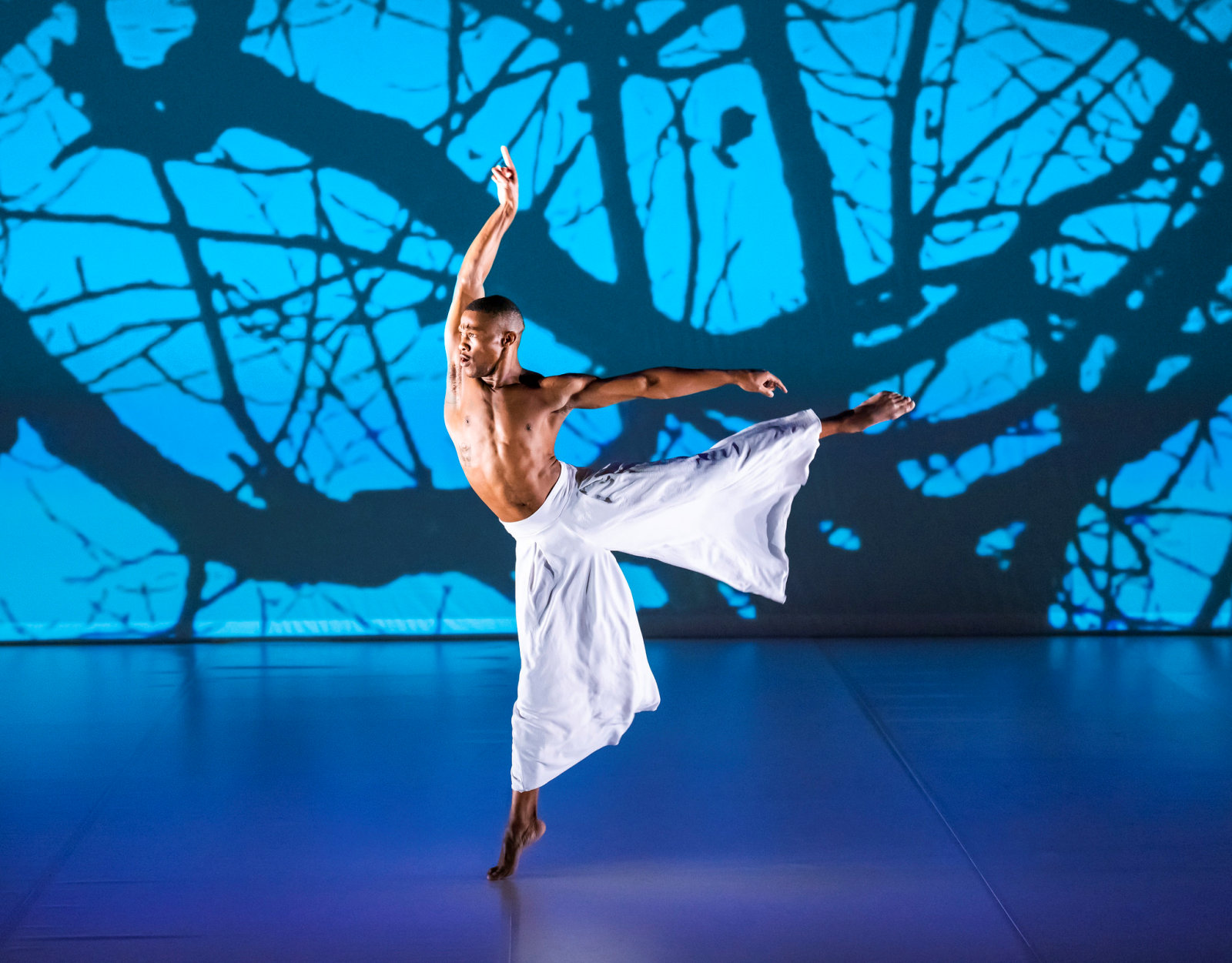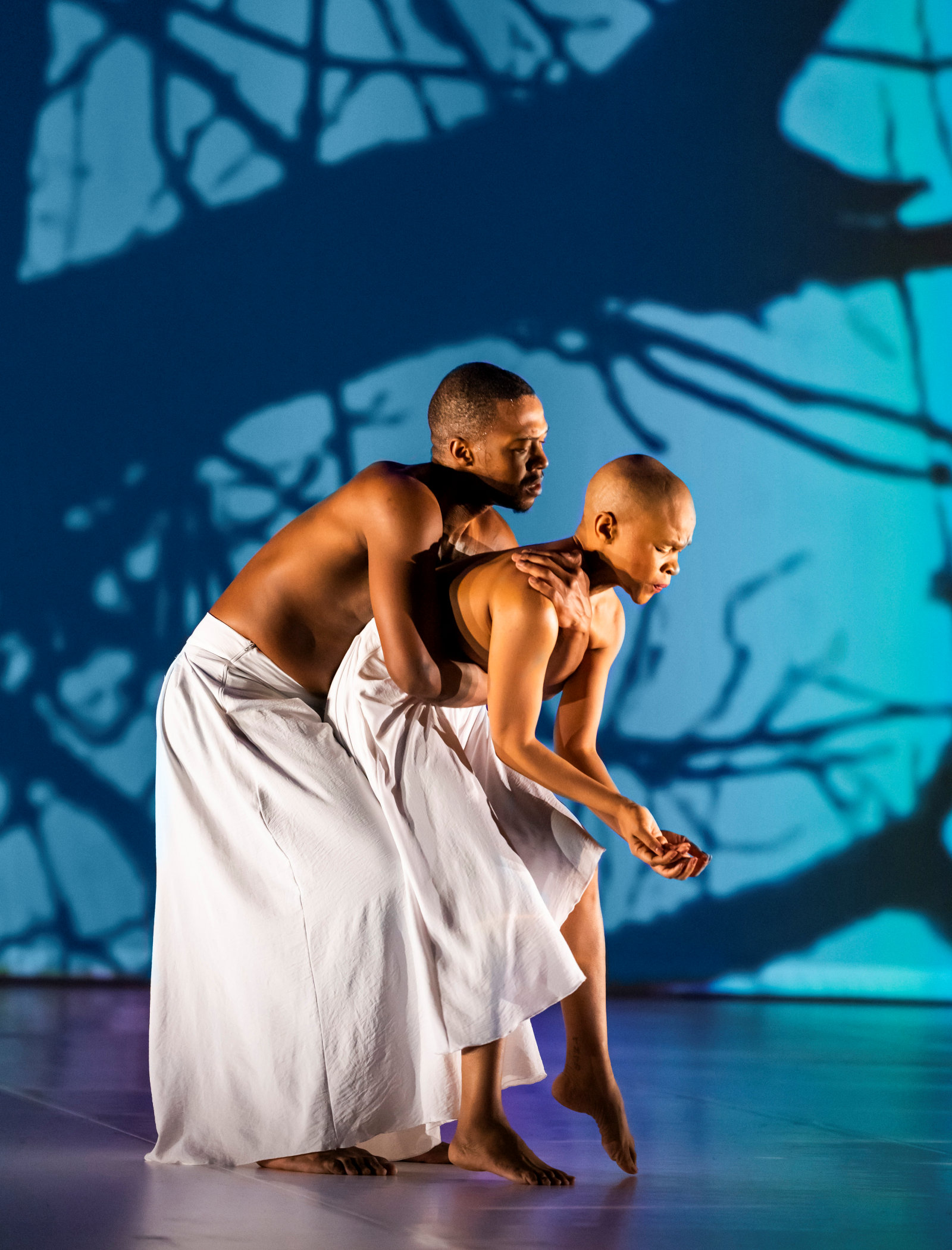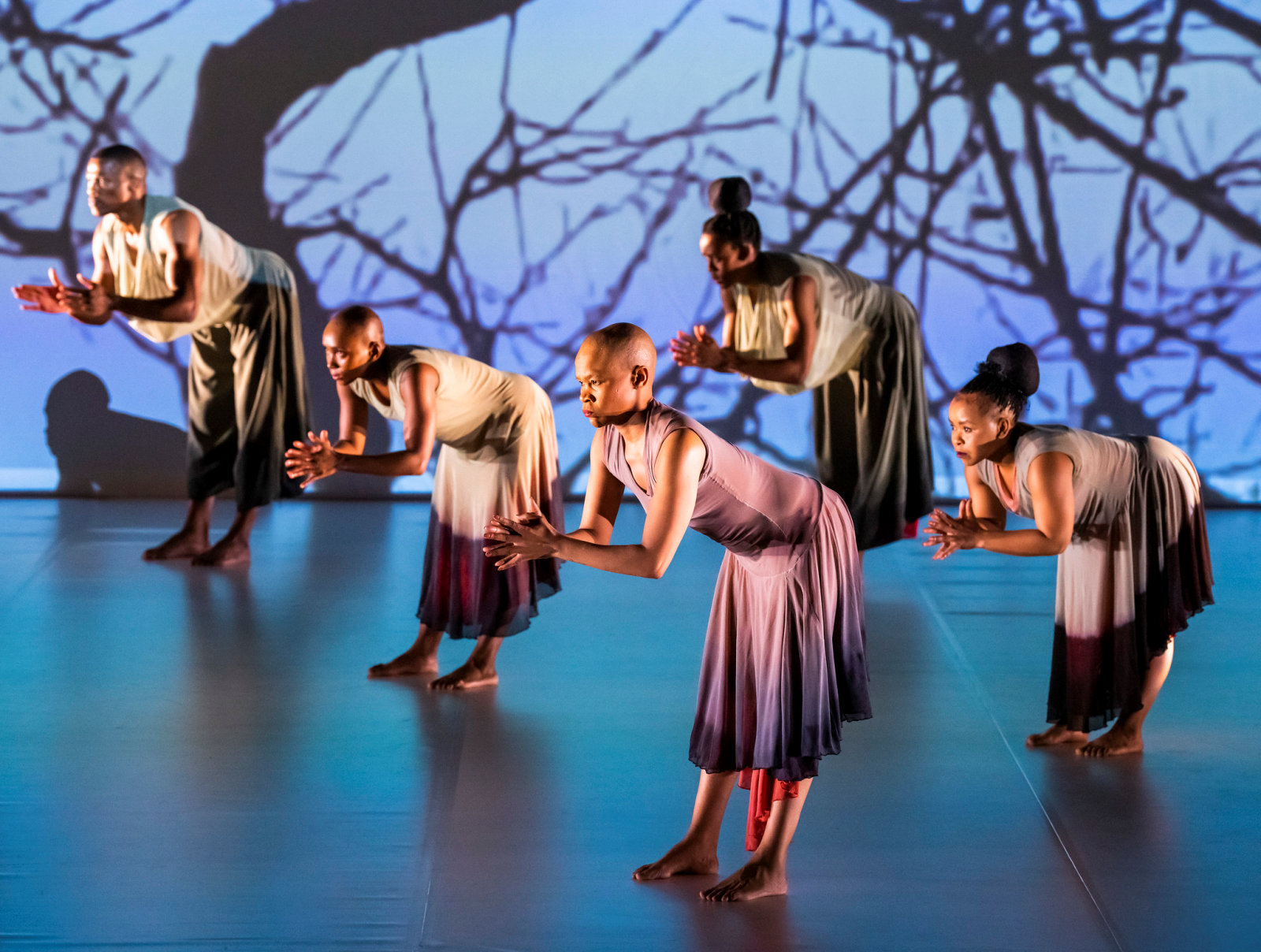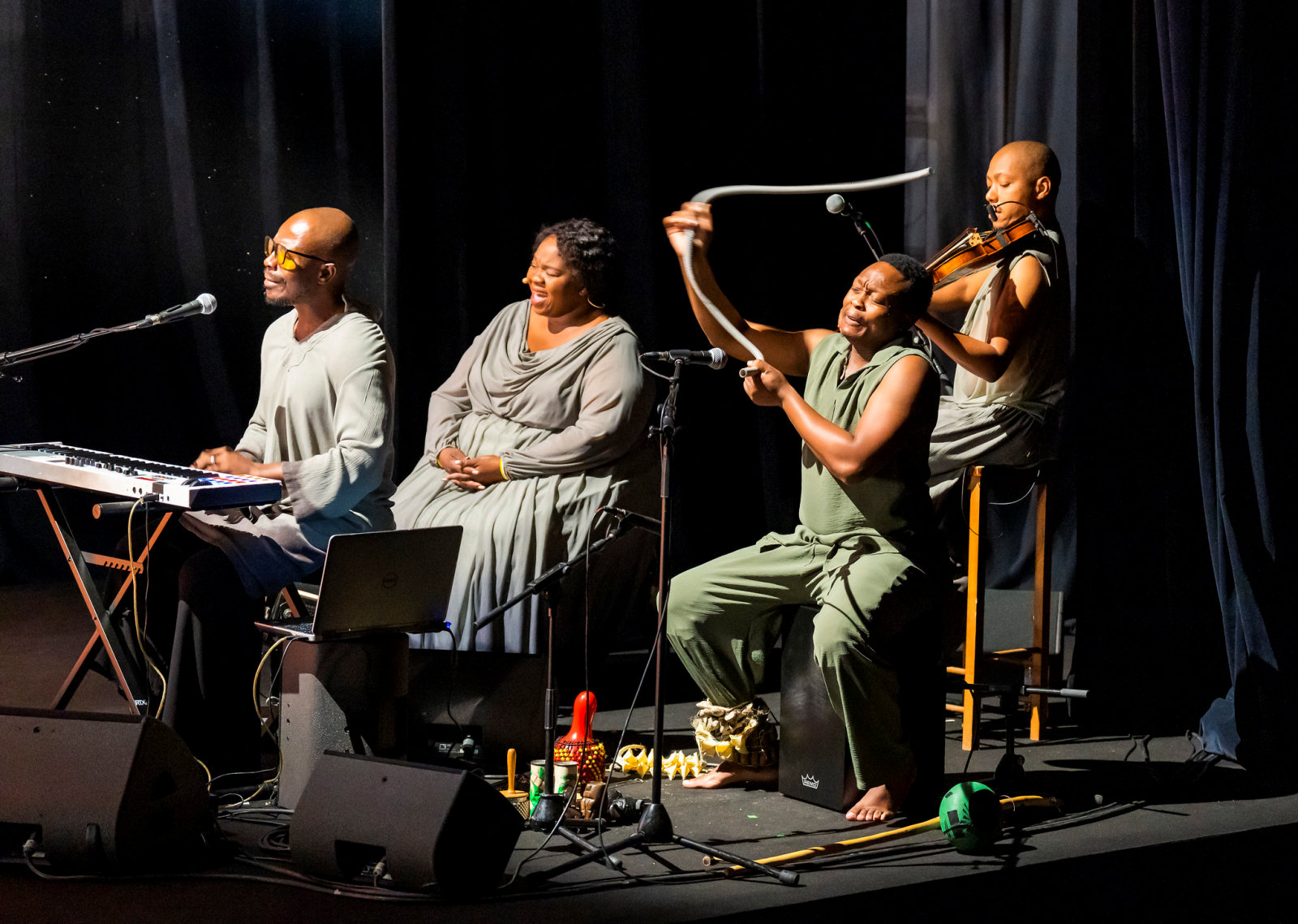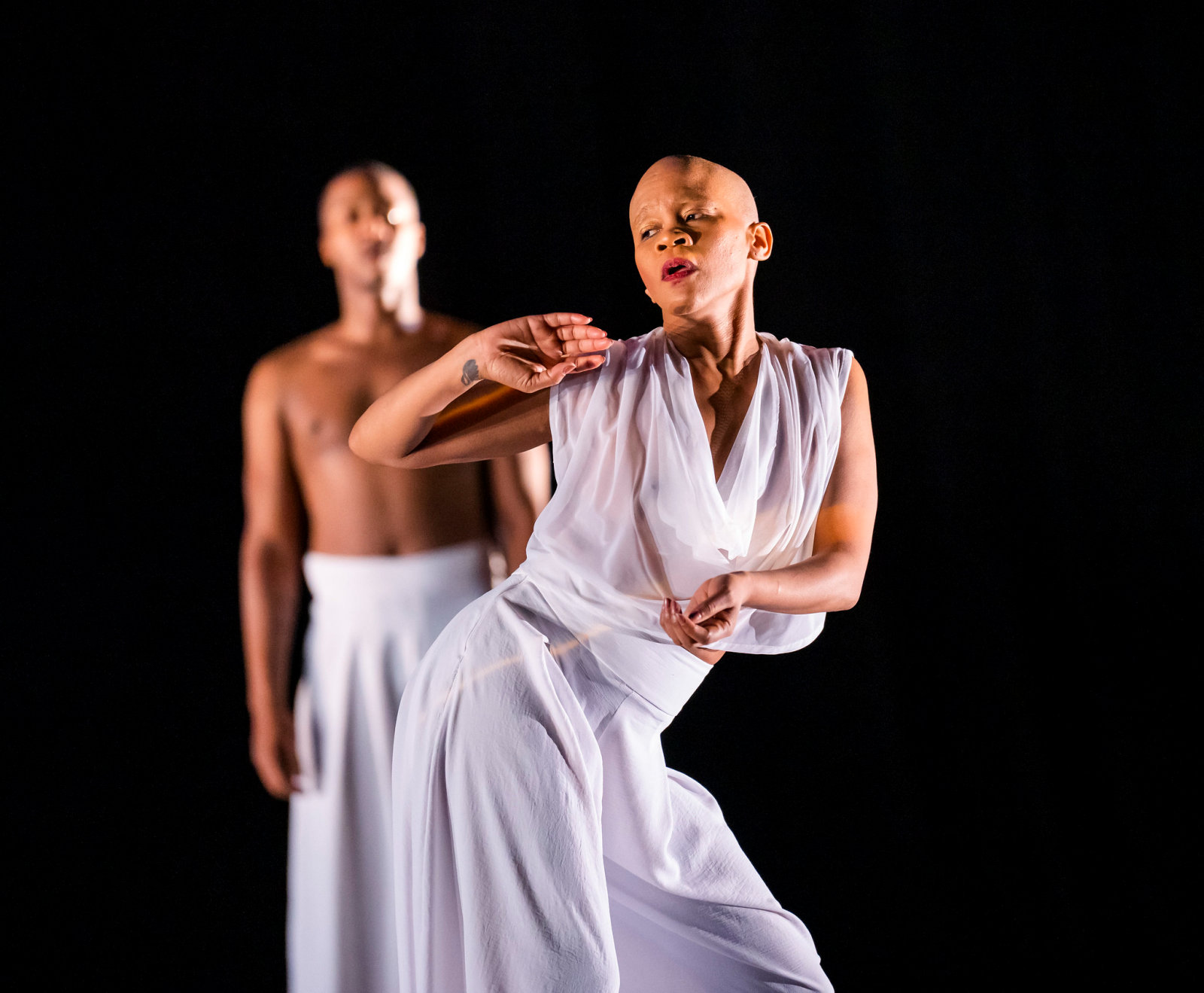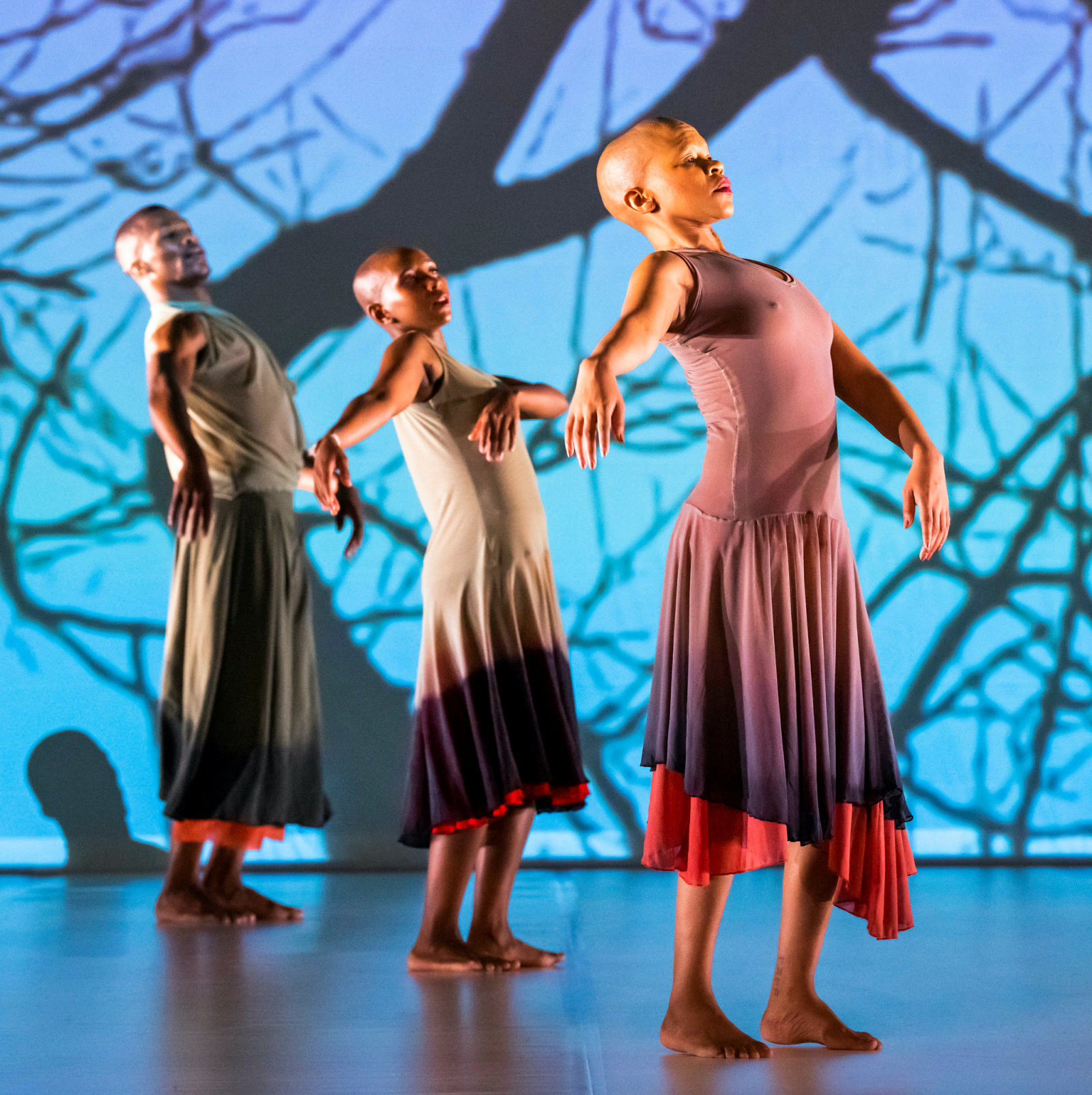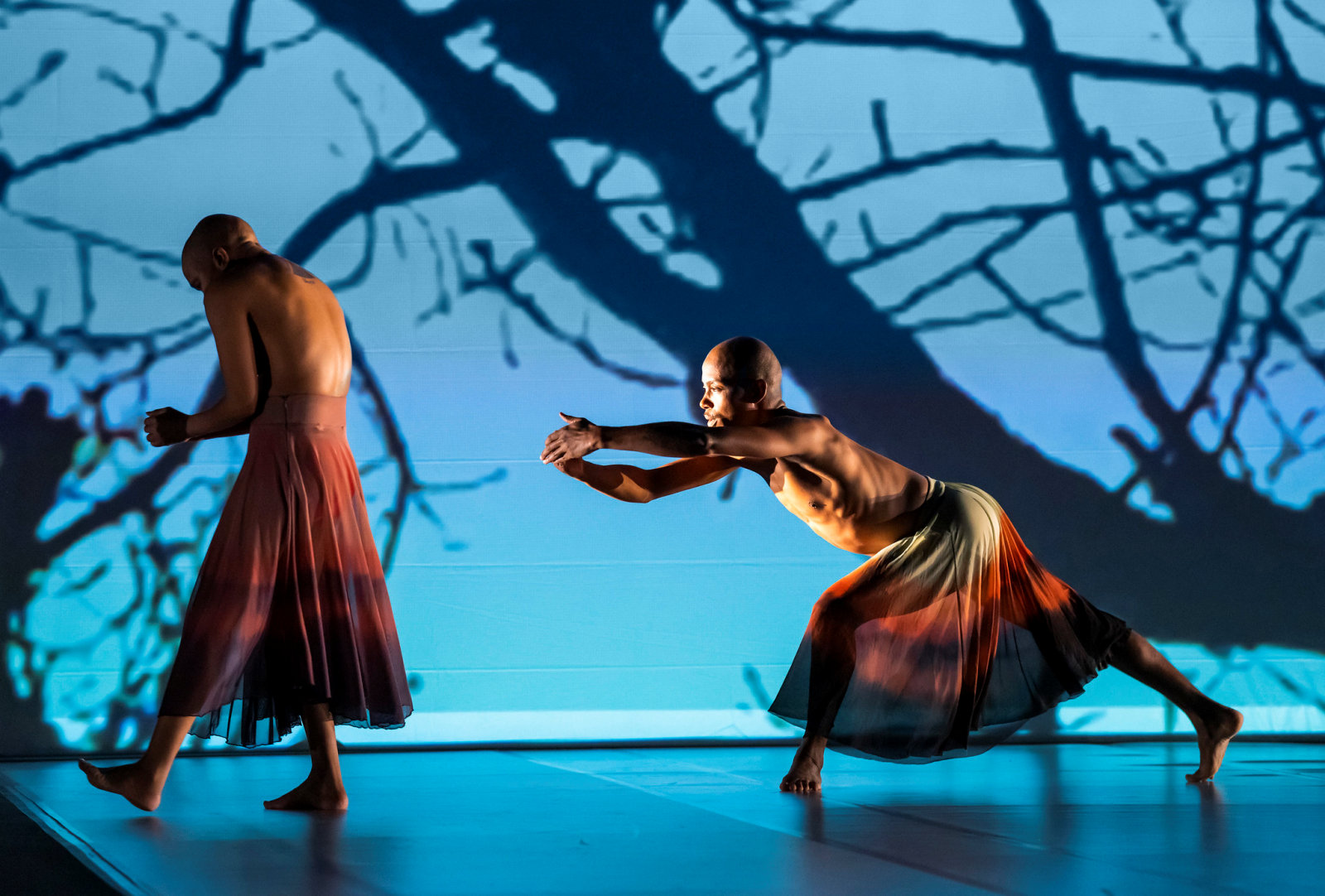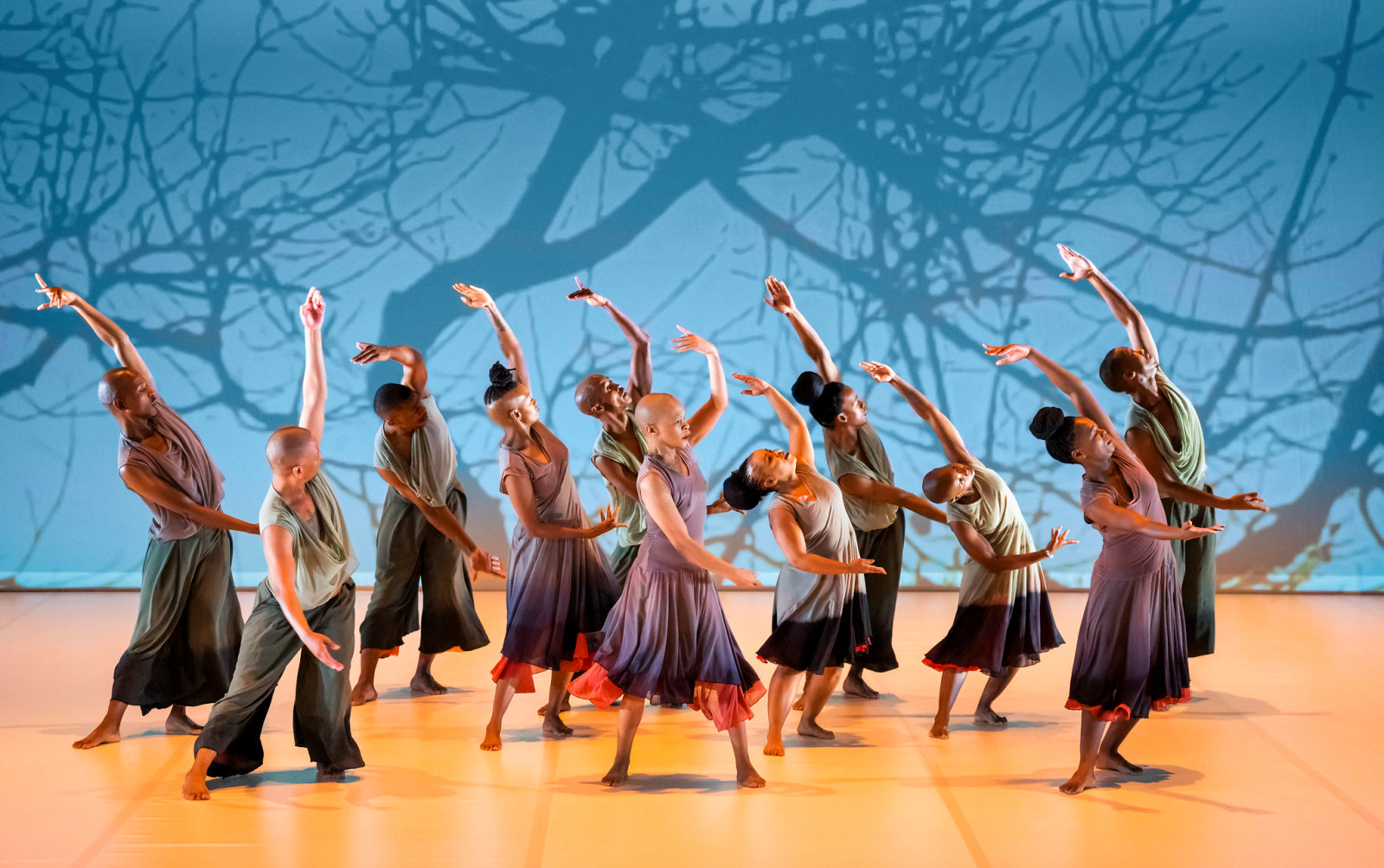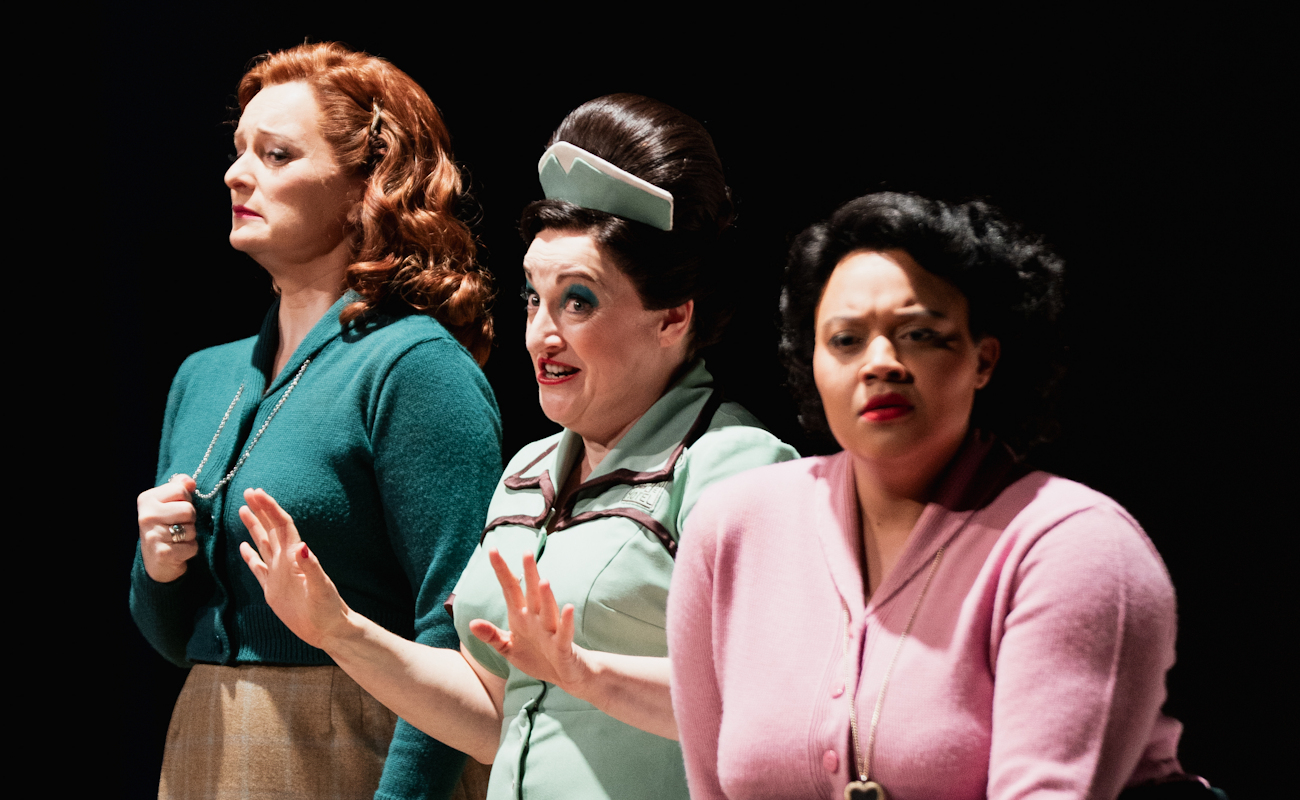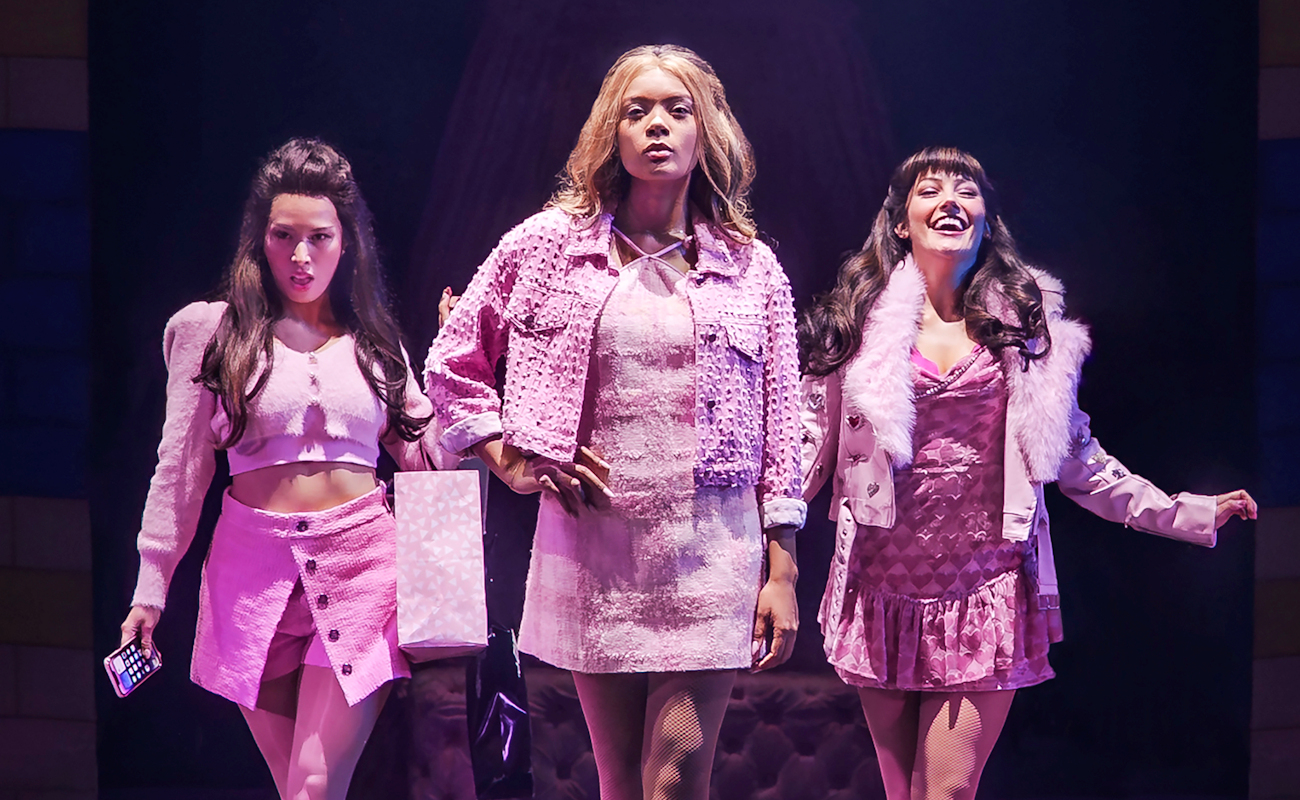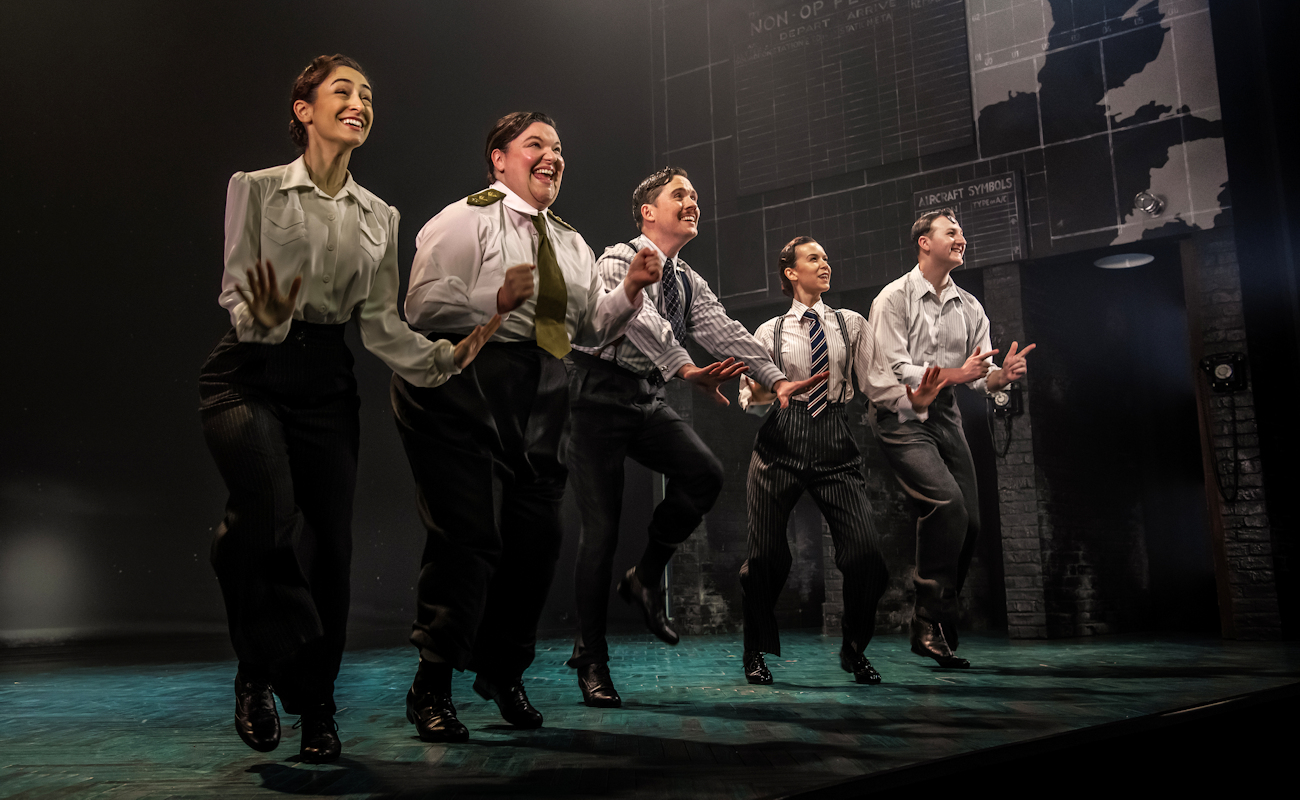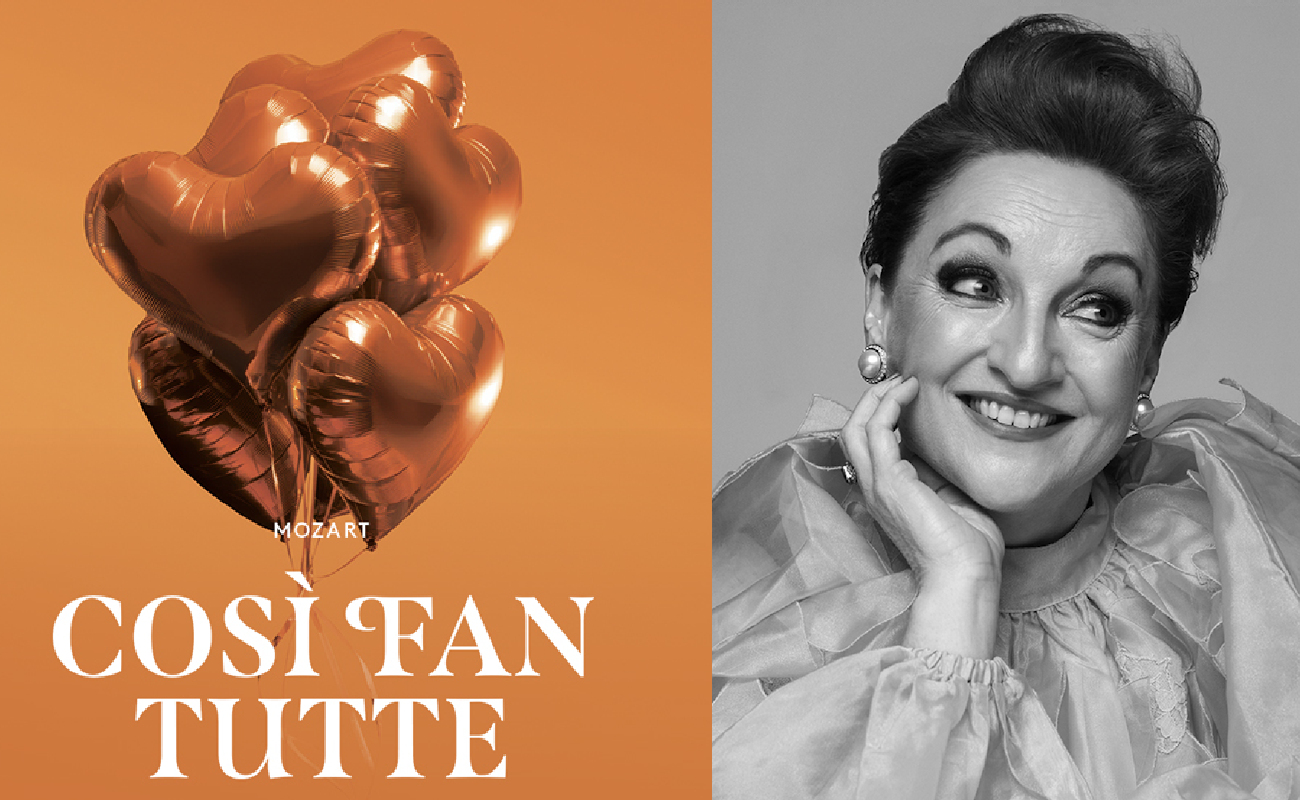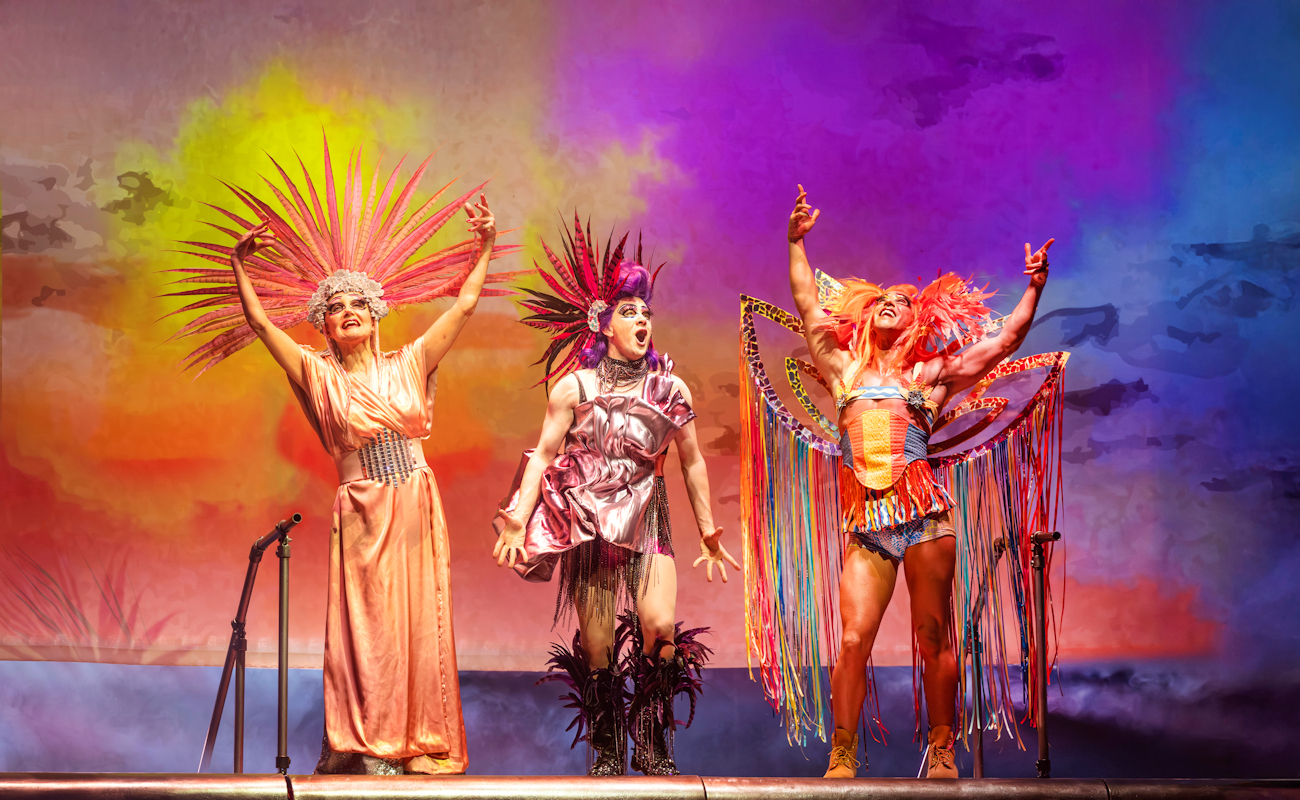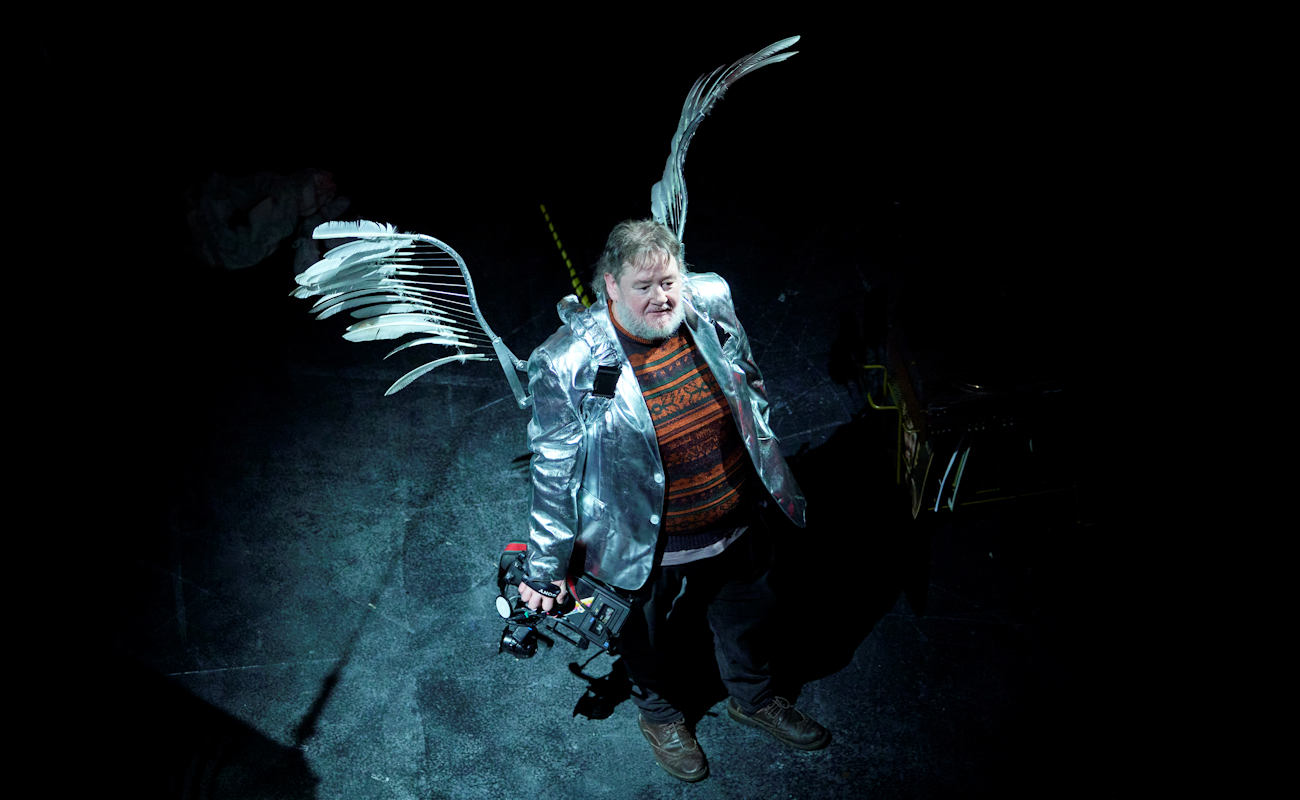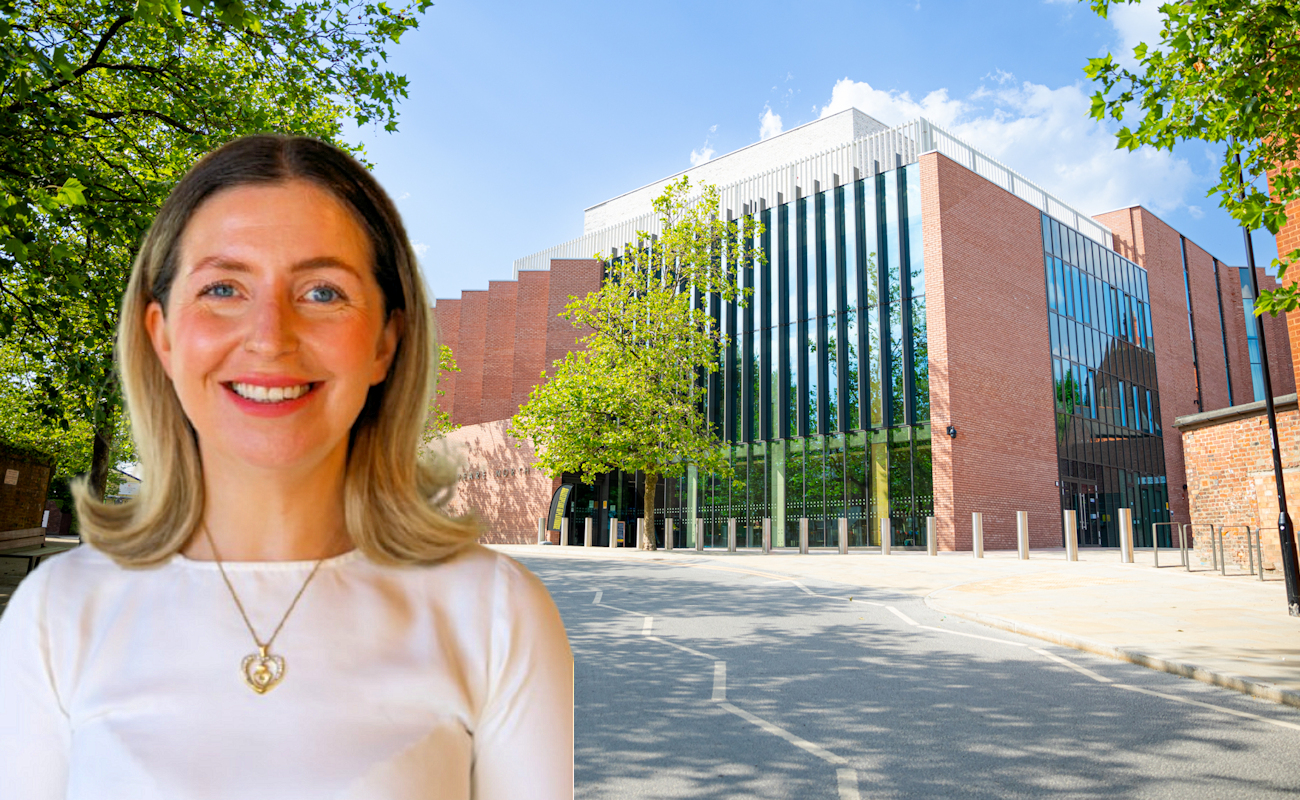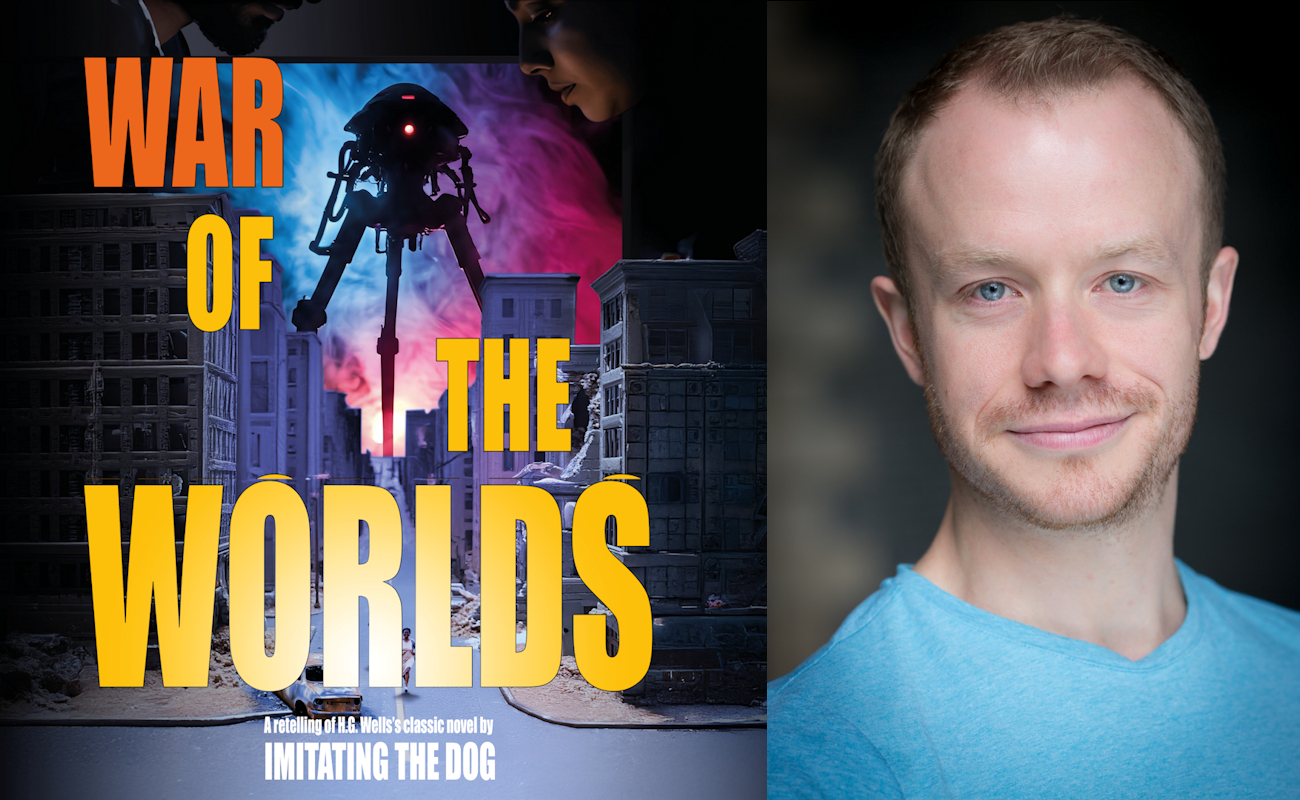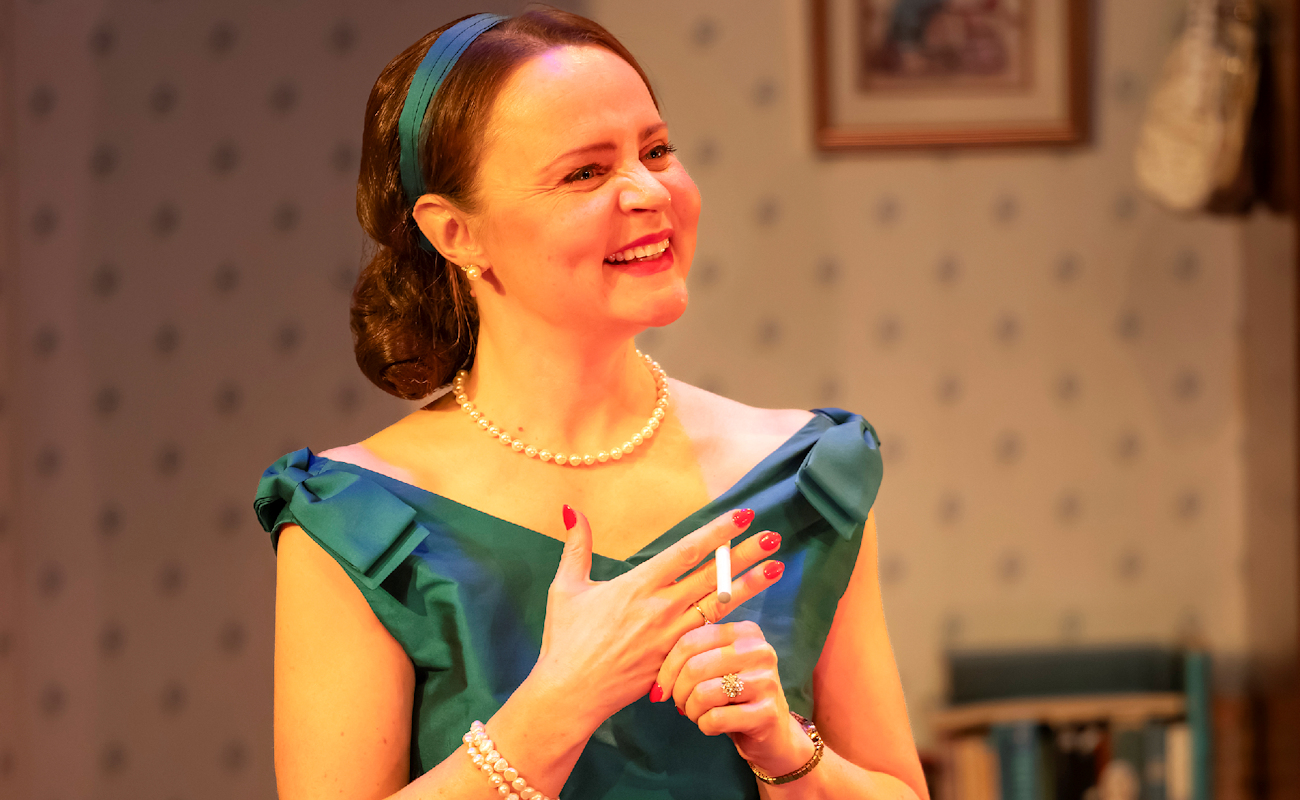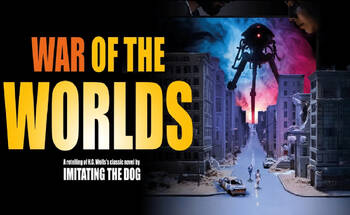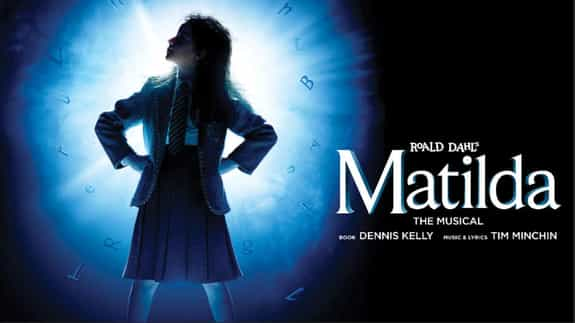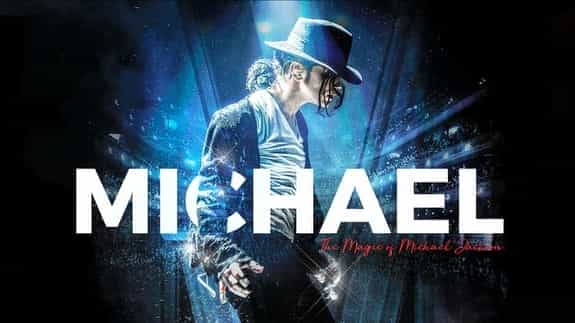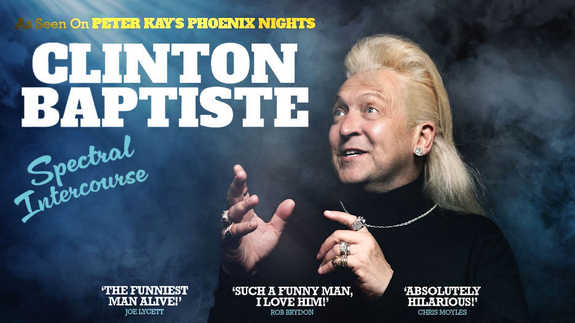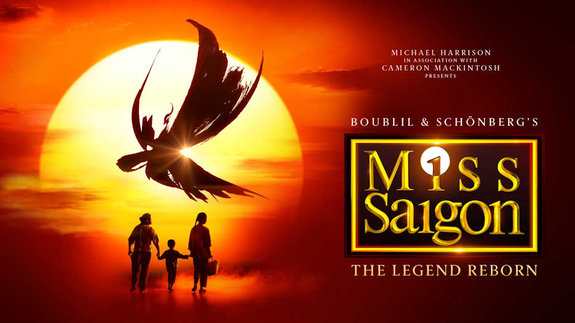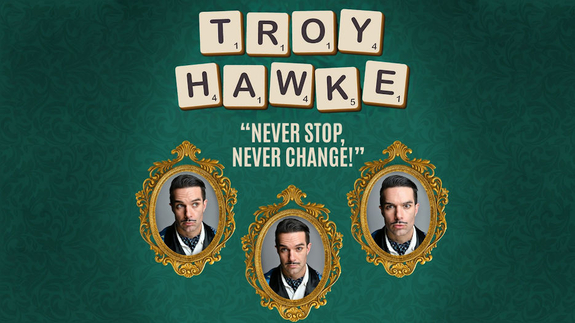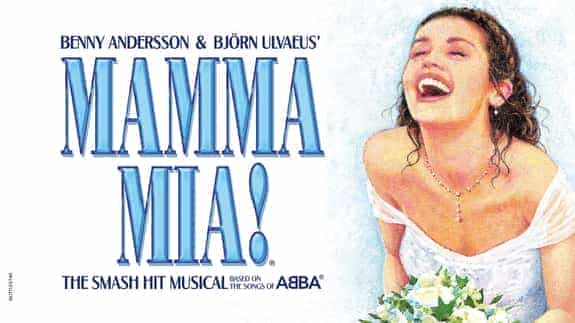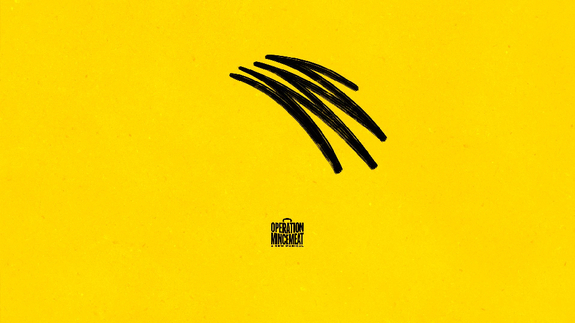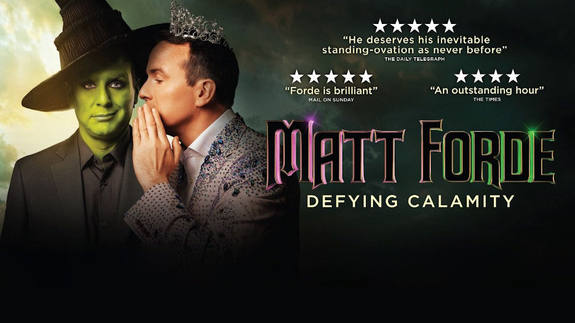Dada Masilo - The Sacrifice
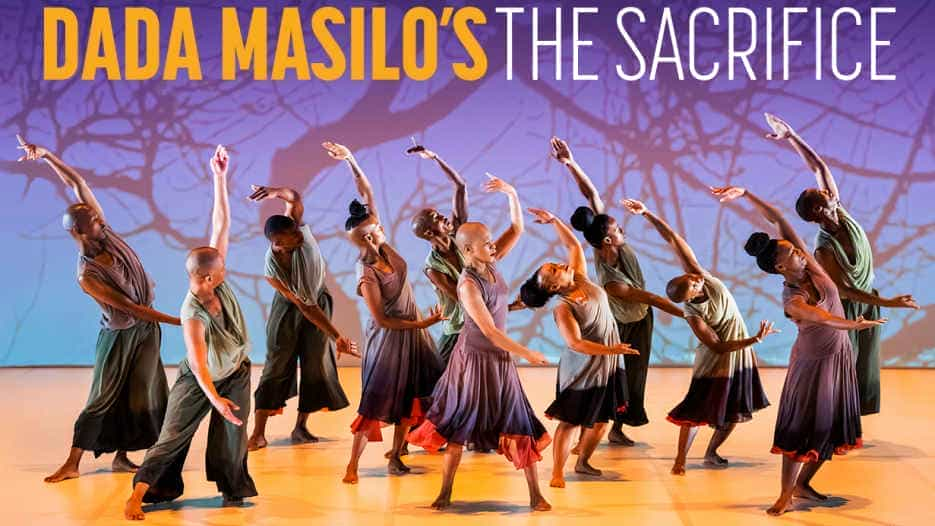
Dance Consortium presents
Dada Masilo’s
THE SACRIFICE
UK Premiere
South Africa’s award-winning Dada Masilo wowed critics and audiences with her stunning re-imagining of Giselle in 2019. Now back by popular demand, Masilo and her company of incredible dancers return with the UK premiere of The Sacrifice.
Featuring live music on stage, The Sacrifice is inspired by Igor Stravinsky’s The Rite of Spring, combining the European heritage of this monumental piece of music with the uniquely rhythmic and expressive movements of ‘Tswana’, the traditional dance of Botswana. Rooted in story-telling and healing ritual, Masilo and her dancers deliver an exhilarating performance that will transport you through a journey of emotions.
Watch our interview with Dada Masilo discussing The Sacrifice...
Dada Masilo - The Sacrifice Tickets

Sorry, there are no tickets for Dada Masilo - The Sacrifice in Salford available at the moment. This maybe due to one of the following reasons:
- - Dada Masilo - The Sacrifice in Salford tickets are currently not on sale.
- - The event has sold out.
- - Details have not yet been announced for Dada Masilo - The Sacrifice in Salford.
- - The event may have been cancelled.
- - The event has been and gone.
Join our free mailing list for
updates about this event

Dada Masilo - The Sacrifice ON TOUR
Our review on Dada Masilo - The Sacrifice
Dada Masilo's The Sacrifice - The Lowry, Salford - Tuesday 21st March 2023 by Christa Norton
Our Rating
THE SACRIFICE IS INNOVATIVE AND EXCITING - A BEAUTIFUL PRODUCTION THANKS TO DADA MASILO'S AMBITION AND VISION!
I will admit to being curious about this performance of The Sacrifice. Over the past 10 years, Dada Masilo has gained increasing critical acclaim for her productions, which fuse classical ballet and African dance. To do this successfully from a technical and artistic perspective is impressive enough, but she has also overcome huge cultural resistance to create an artform that is both exciting and new whilst also feeling rooted in something familiar.
However, it is her choice of material that really made me curious. Previously, Masilo has chosen the stalwarts of the ballet world – Romeo and Juliet, Swan Lake and, most recently, Giselle, for which she received multiple awards. Yet her inspiration for The Sacrifice is The Rite of Spring – a ballet notoriously challenging, from its subversive subject matter to its rhythmically intricate and complex music.
Indeed, The Rite is a ballet that remains controversial and which continues to push boundaries more than a hundred years after its premier in Paris. I was therefore intrigued to see how Masilo would approach this work.
As it turns out, The Rite of Spring is an inspired choice. Masilo takes the fundamentals of the original work - with all their complexity - and uses them to explore the Tswana heritage of her own background. Gone is the music of Stravinsky and the Russian folklore and, in its place, the Tswana dance and traditions set to a score that encompasses musical influences across Classical, Jazz and Folk as well as African.
The result is something quite enthralling.
The story of The Sacrifice is that of a primitive community celebrating the return of Spring and the renewal of the earth through the sacrifice of a virgin. There is common ground with Masilo’s previous productions, which all focus on the plights of wronged women (Juliet, Odette, Giselle), and this theme, along with the role of ritual and sacrifice, does become more dominant as the story plays out on stage.
It opens, then, with Masilo in the titular role of The Sacrifice. From the moment she walks on the stage, alone and apart from the rest of the company, her performance is captivating; her hands flutter and flit as though exploring, learning and communicating with the world around her. The moves are reminiscent of bird wings as she swoops and dives with her whole body. At times frenetic, there is a sense of a child at play, bursting with her own imagination – and this innocence stays with her throughout the performance.
The staging for this opening is minimal yet effective; a backdrop of cave painting-style symbols which evoke the primitive, that sense of a people trying to understand an unfathomable world.
The backdrop changes just once, after this opening piece, to a silhouette of bare tree branches. The lighting throughout is equally bare, with the stage almost always bathed in a greyish yellow that evokes that moment just before the sun rise, not quite light, no longer dark, when the world is colourless. It sets the tone for the story perfectly.
The music, however, is anything but colourless. Masilo has chosen not to use Stravinsky’s original score but to take it as inspiration for a new composition by Ann Masina, Leroy Mapholo, Tlale Makhene, and Nathi Shongwe. For me, Stravinsky’s influence was never far away: from intense rhymical drumming underneath long lyrical harmonies, to the use of syncopation and complex time signatures that – like The Rite of Spring – sometimes seem to change every other bar, the reference was clear.
But to suggest that this composition is simply homage would be an injustice. This new score is a complex, multi-layered composition that draws not just on different musical genres, but on nature itself, with birdsong repeatedly incorporated into the music. The use of African percussion as an aural counterpoint to the violin and keyboard was especially effective.
The musicians (Ann Masina, Leroy Mapholo, Mpho Mothiba and Nathi Shongwe) are positioned to the side of the stage, much like a Greek chorus, and indeed they are very much an extension of the company, reacting and responding to both the audience and the dancers and – on occasion - being rebuked by the dancers for playing too fast: “can we have an Adagio please”, much to the laughter of the audience.
This interplay is helped by attentiveness and sympathetic playing of the musicians, who play without music and who rarely take their eyes off the dancers (Lehlohonolo Madise, Refiloe Mogoje, Thandiwe Mqokeli, Eutychia Rakaki, Leo Dibatana, Lwando Dutyulwa, Thuso Lobeke, Songezo Mcilizeli, Steven Mokone and Tshepo Zasekhaya).
One particularly memorable moment is a duet between the violinist and a female dancer. The violinist, unaccompanied, plays a folk melody that is reminiscent of Vaughn William’s The Lark Ascending – a slow, sweeping melody that captures the sense of a bird in flight. The dancer mimics this, swooping up and down, following wherever the violinist leads, in stark contrast to the stillness of all the other dancers on stage: it is a beautiful piece of choreography.
The first half is full of unexpected good humour that creates a festive atmosphere with no sense of menace or foreboding at what is to come. The choreography is fluid, combining solos, duets and full set pieces that never seem to start or finish, but simply come in and out of focus on the stage, like half heard conversations.
The dancers themselves are exceptional; they clap and stamp and sing and cheer and laugh, creating their own rhythms and music to counterpoint the musicians and often dancing entirely unaccompanied, with nothing but the pounding of their feet to keep rhythm.
Yet the joy and humour of the first half ultimately give way to the horror of the second half. Masilo’s choreography does not shy away from the reality of what is happening. In the increasing religious fervour, the joyous dancing of the company becomes jerky and almost seizure like, fluidity gives way to sharp angles and the sense of the uncontrolled, more animal than human.
As the story reaches its climax, we witness The Sacrifice’s final moments: four men – priests or elders – surround her, torment her, and take her to her death. This is not easy to watch, indeed I found this deeply uncomfortable – and rightly so. However, unlike other interpretations, the Sacrifice is not discarded and left to die alone on stage, but instead is delivered to Masina’s mother-like figure, who sings her a highly emotional lament as she dies.
This lament – operatic in style - is more than just mourning; for me it has the sense of a stinging rebuke against the world that such sacrifice is necessary. However Masina sings it with a sense of resignation, and it is on this note of acceptance that the production ends.
The Sacrifice is one of the most innovative and exciting productions I have seen in a long time. The sheer breadth of cultural inspiration and influence is stand out but Dada Masilo brings it together in a way that really makes this feel accessible.
The audience agreed, with Masilo receiving cheers as well as a standing ovation at the end. It was fantastic to see such a diverse audience in attendance, particularly so many young people who clearly took a lot from the production. Masilo’s ambition to create a new language, one that has the ability to cut across multiple cultures to become global, is an unquestionable success.
WE SCORE DADA MASILO'S THE SACRIFICE...
